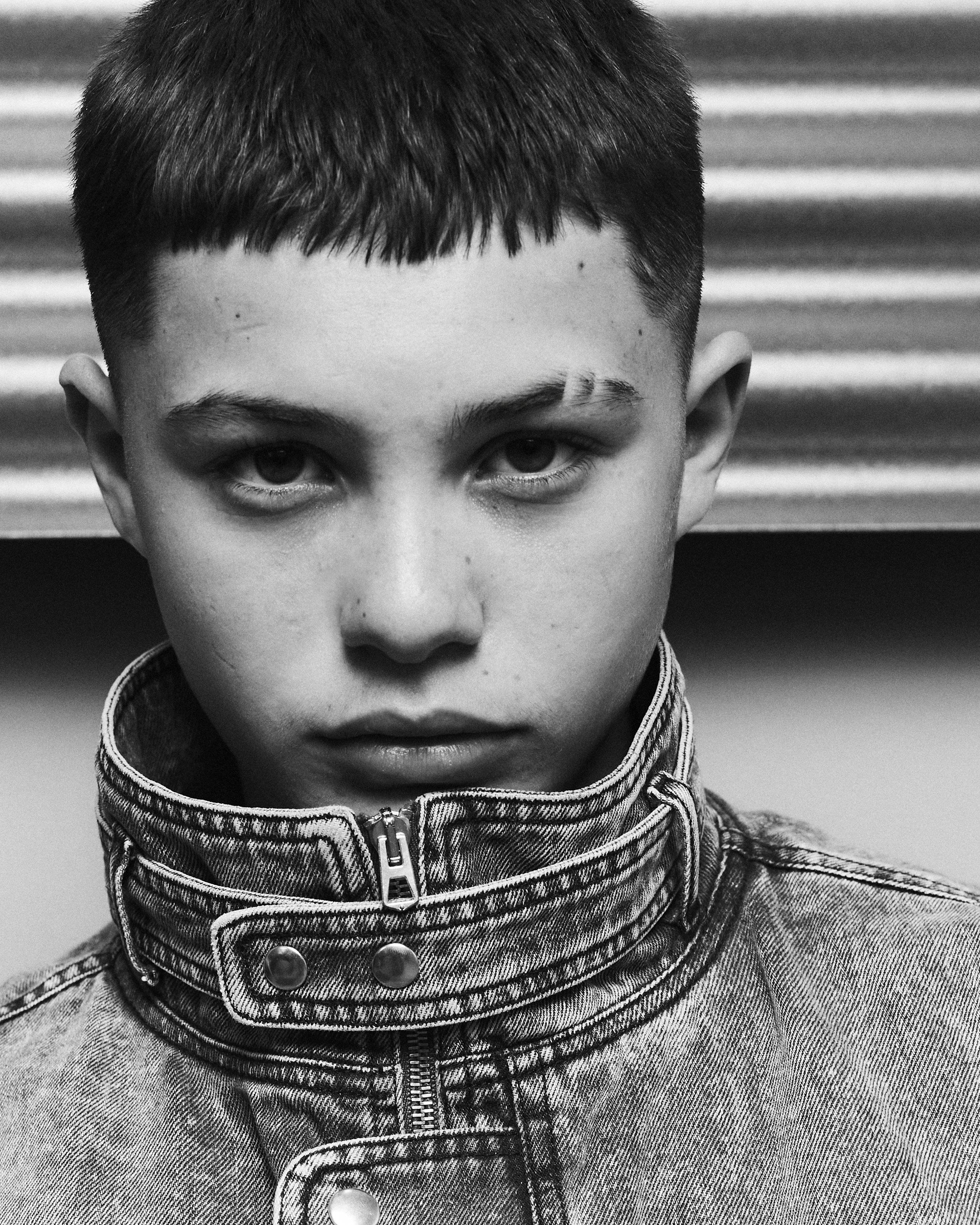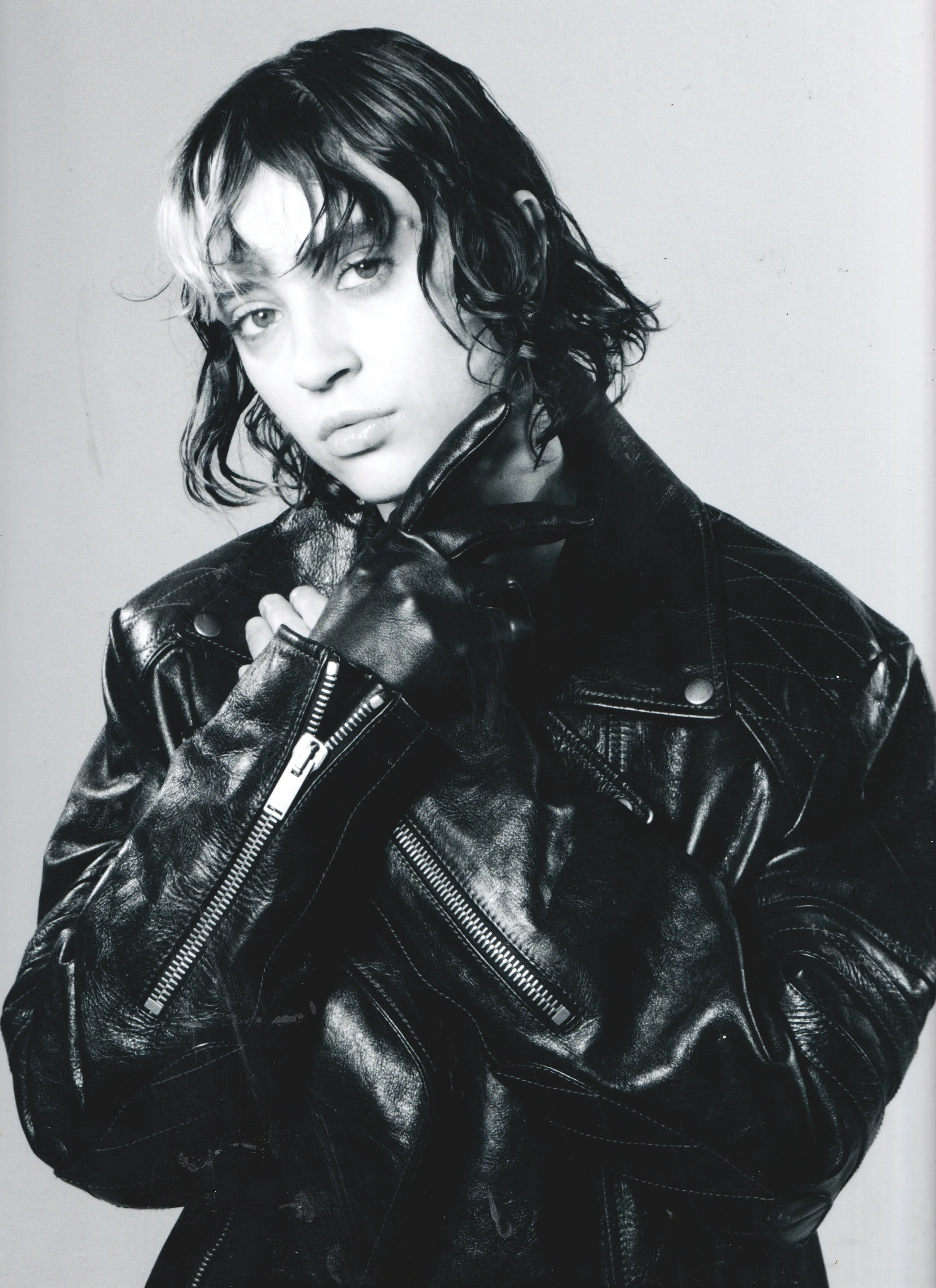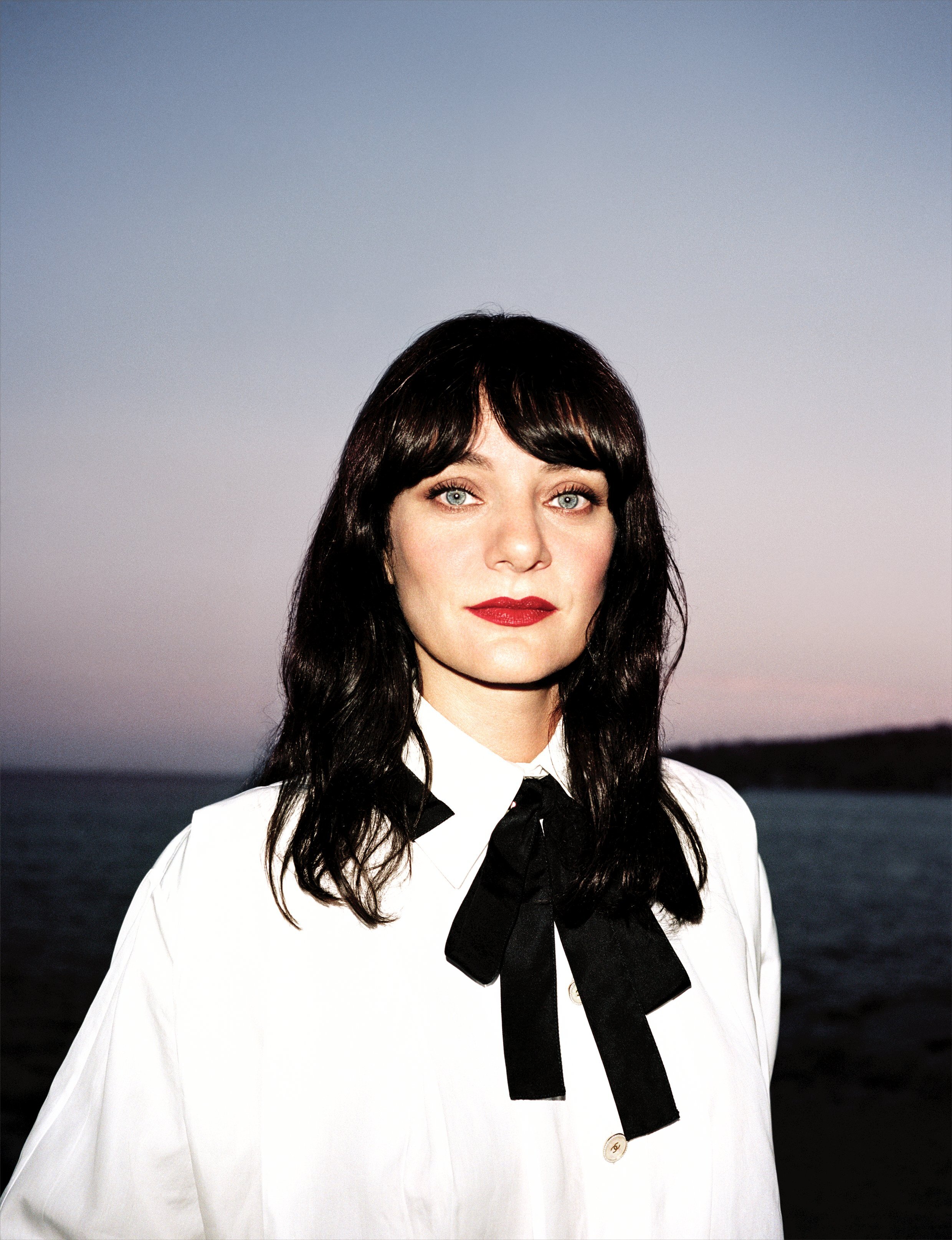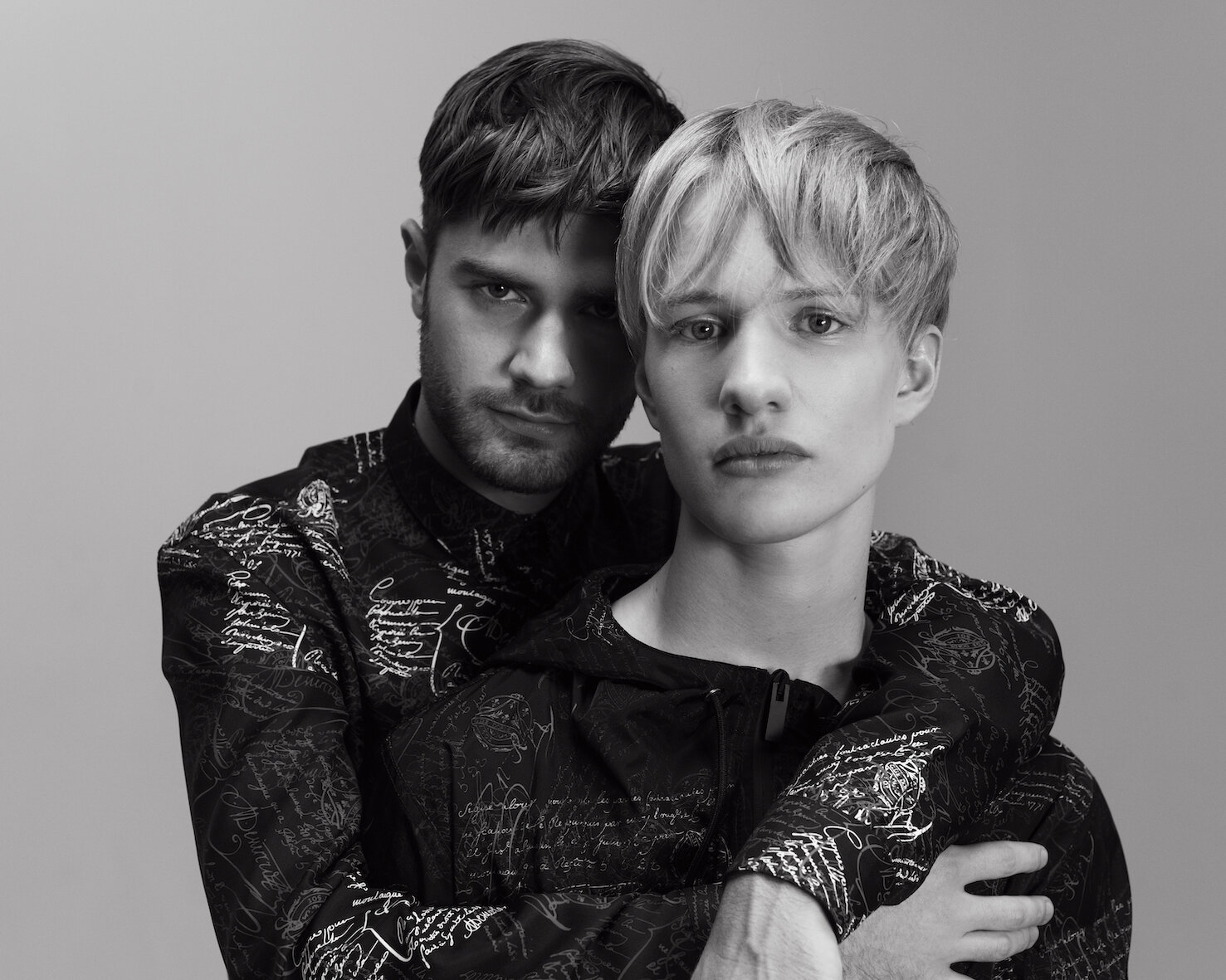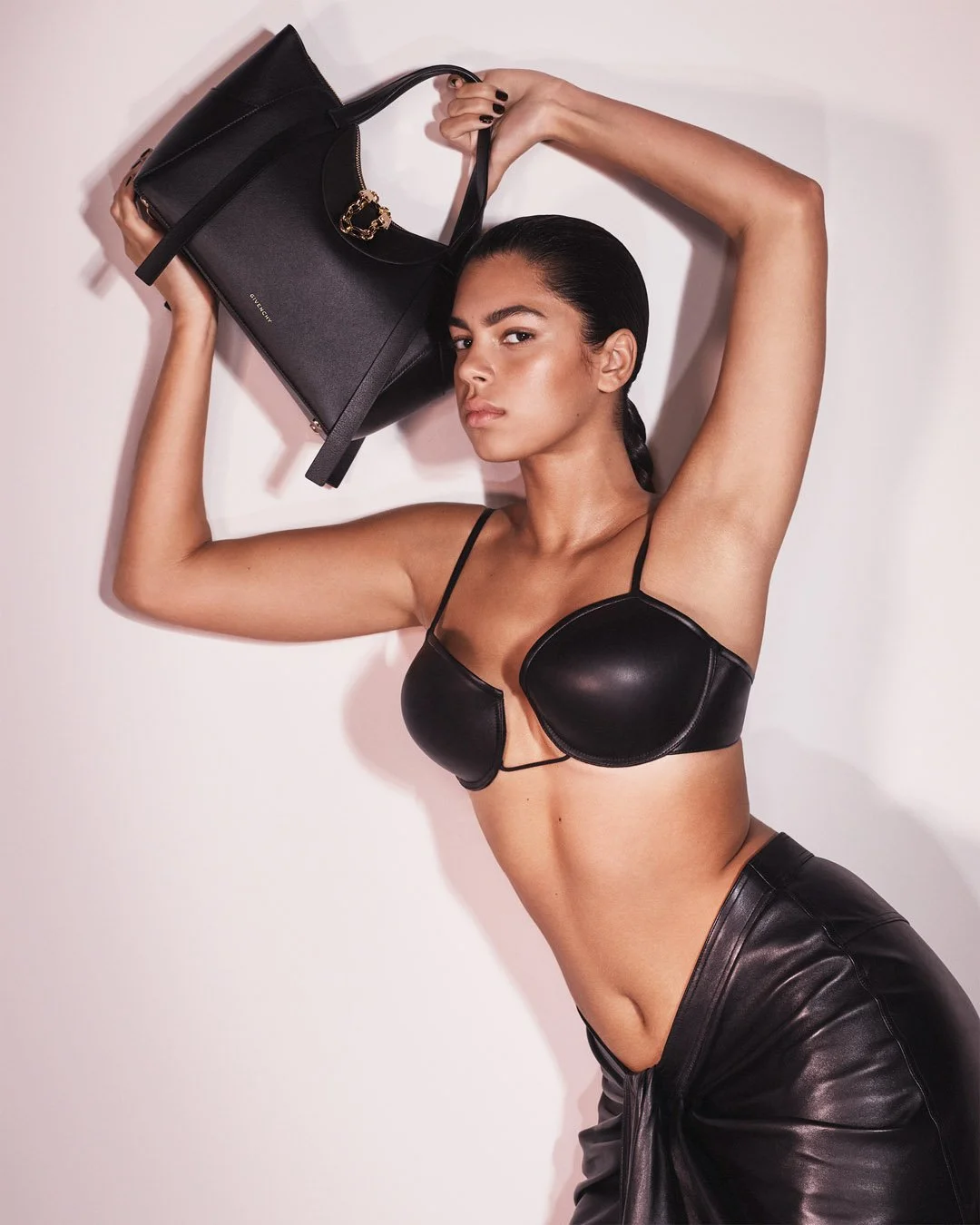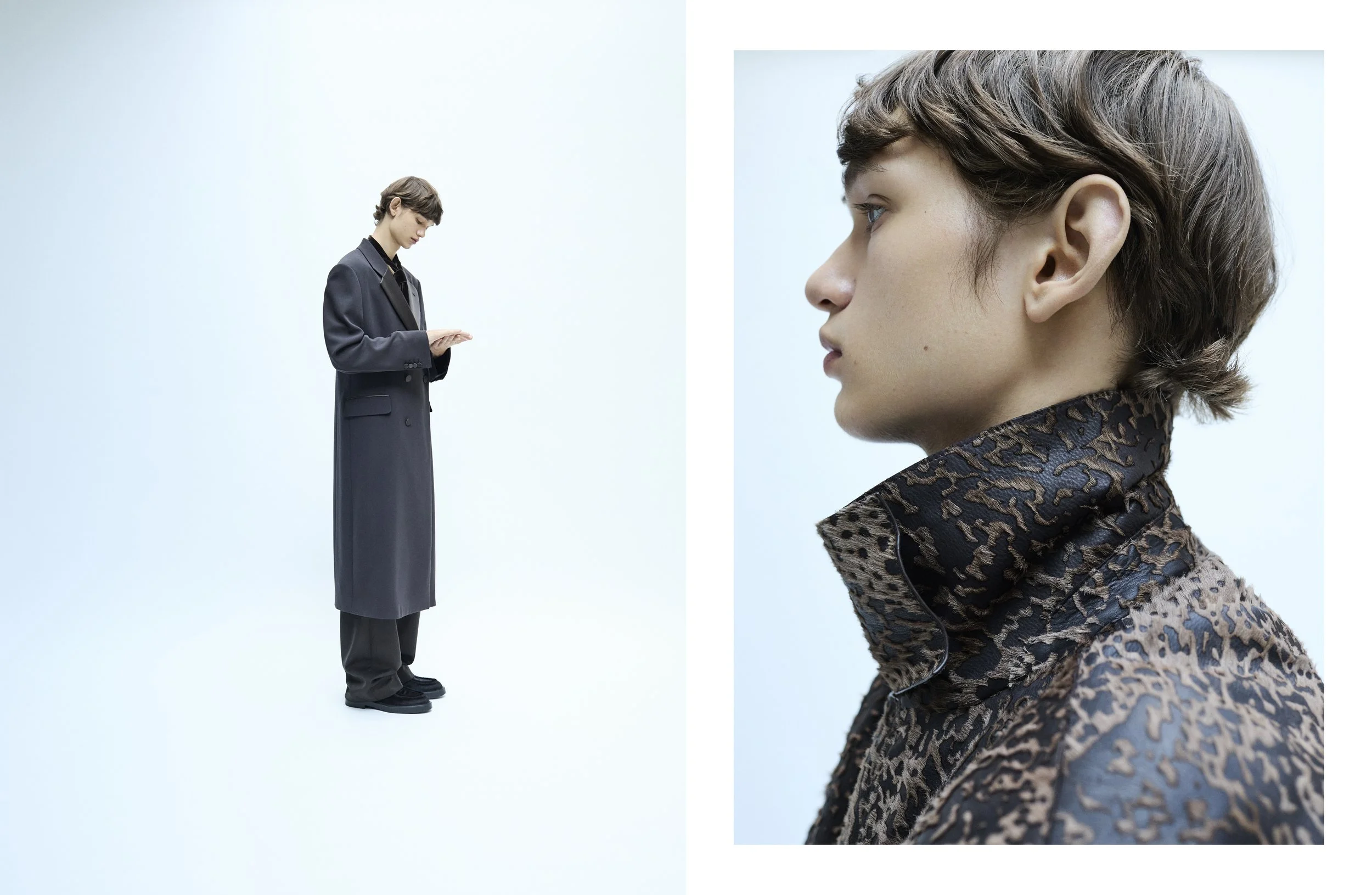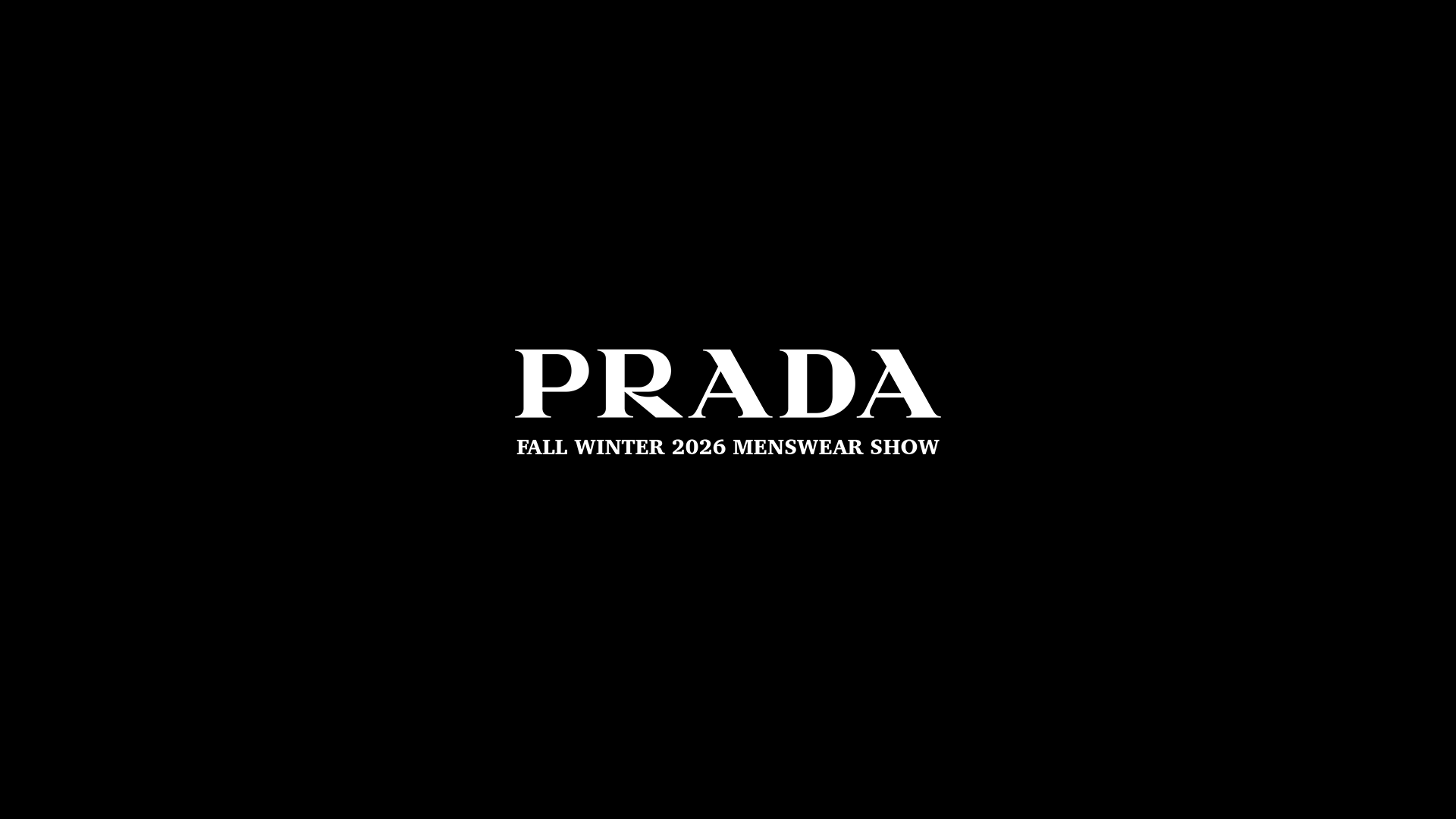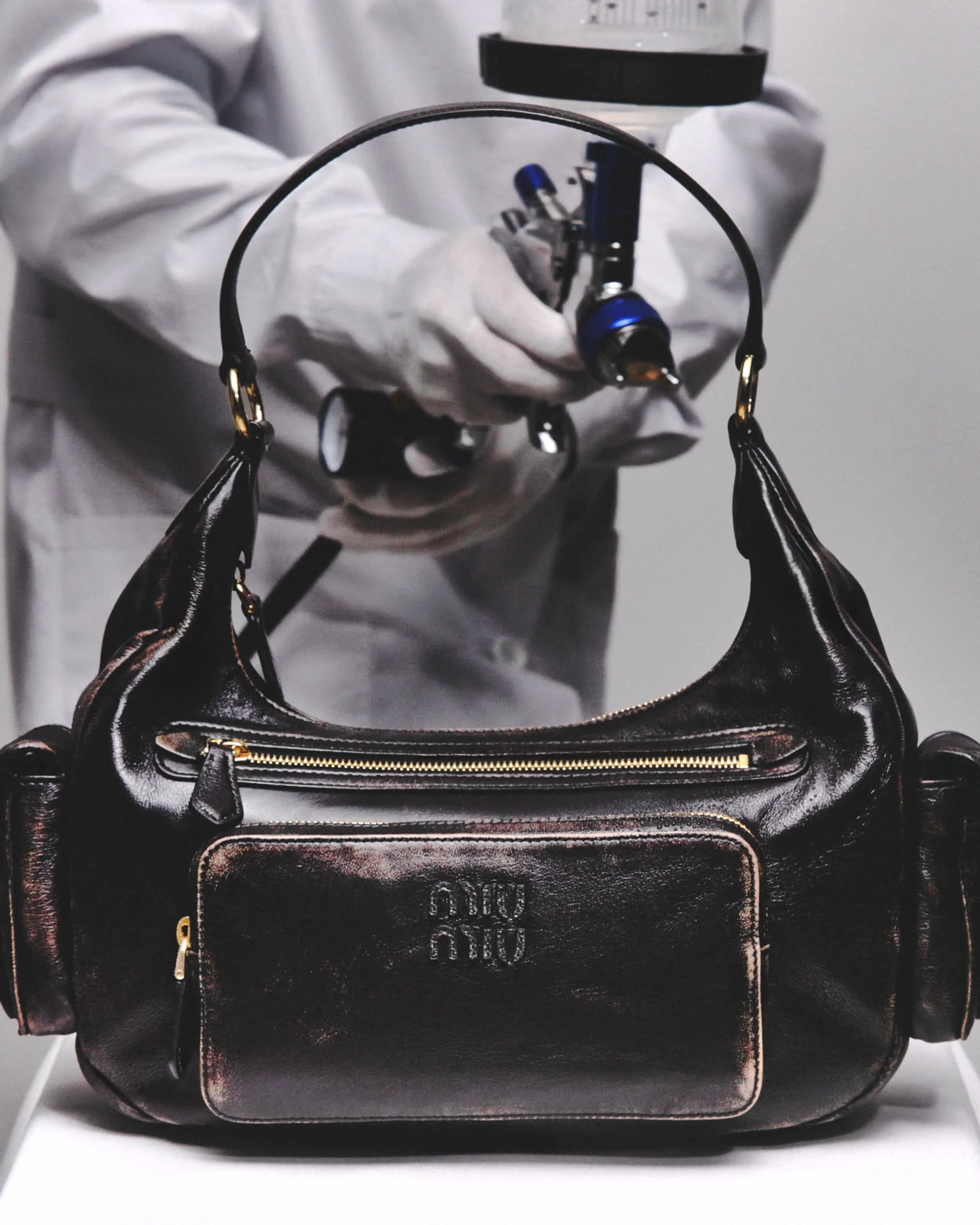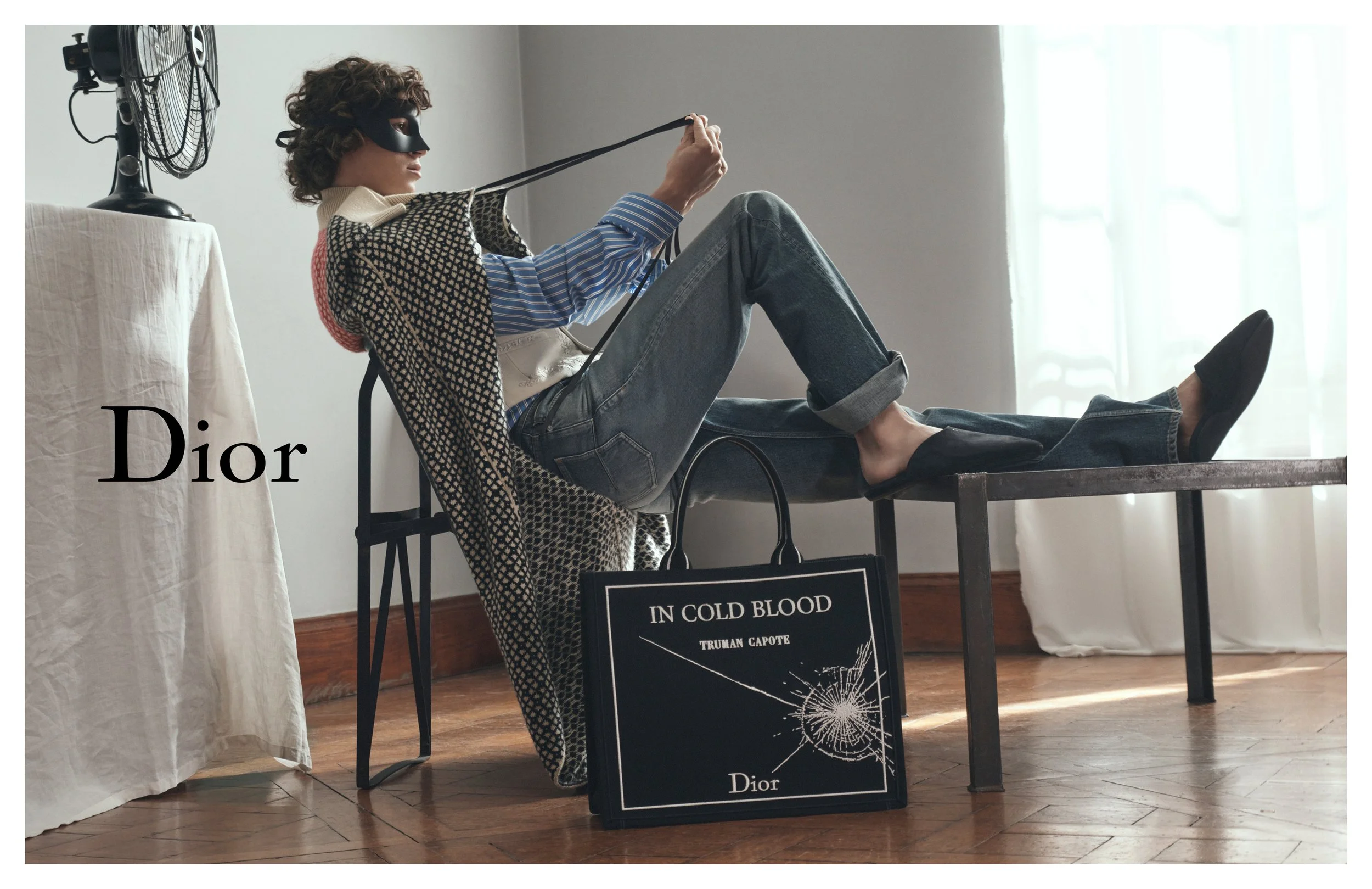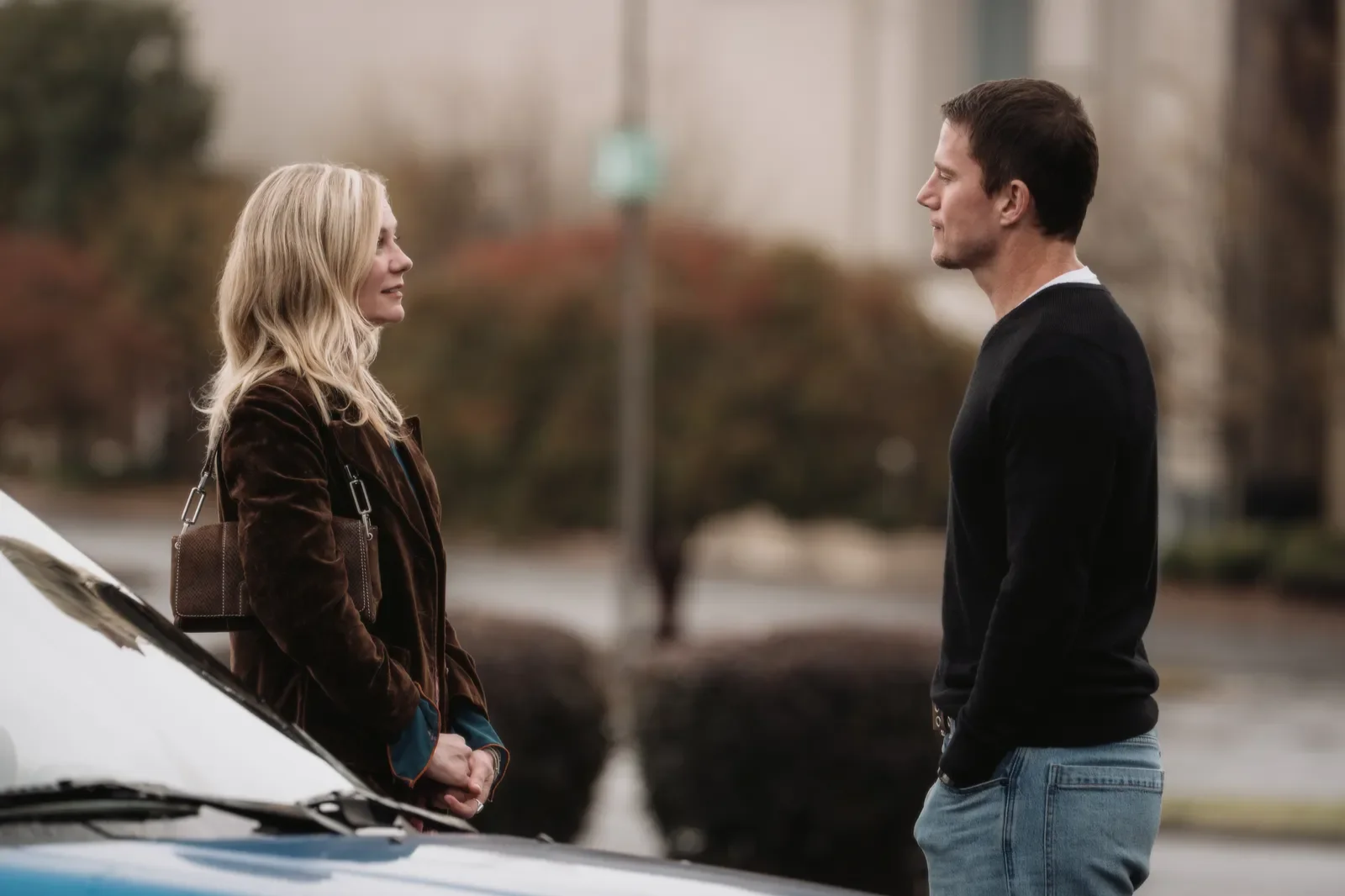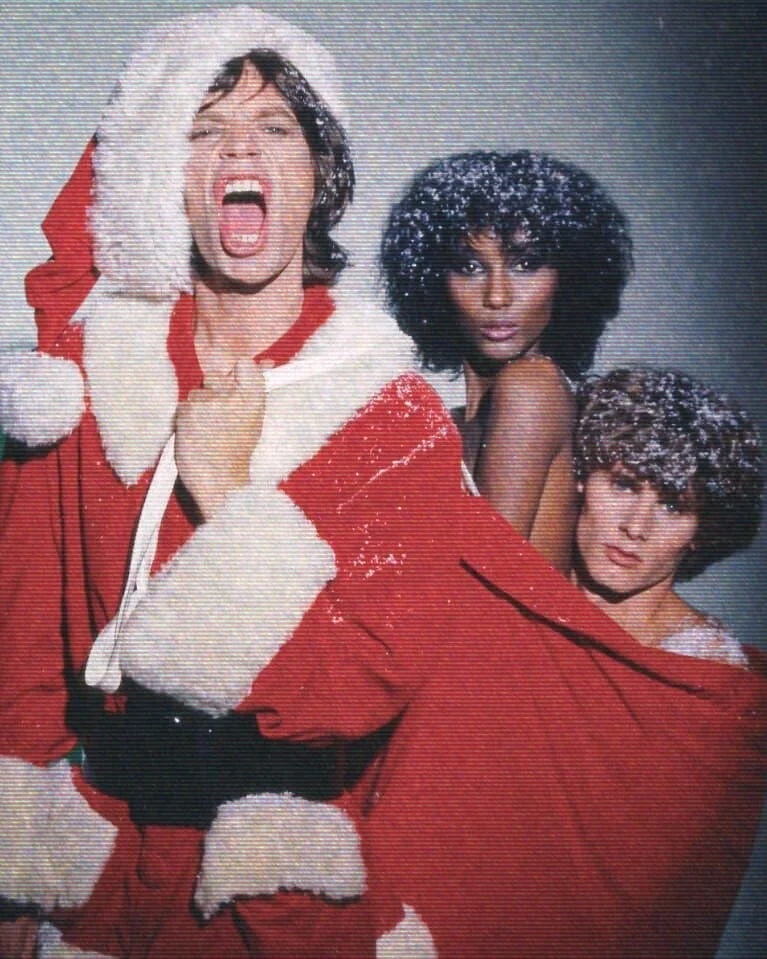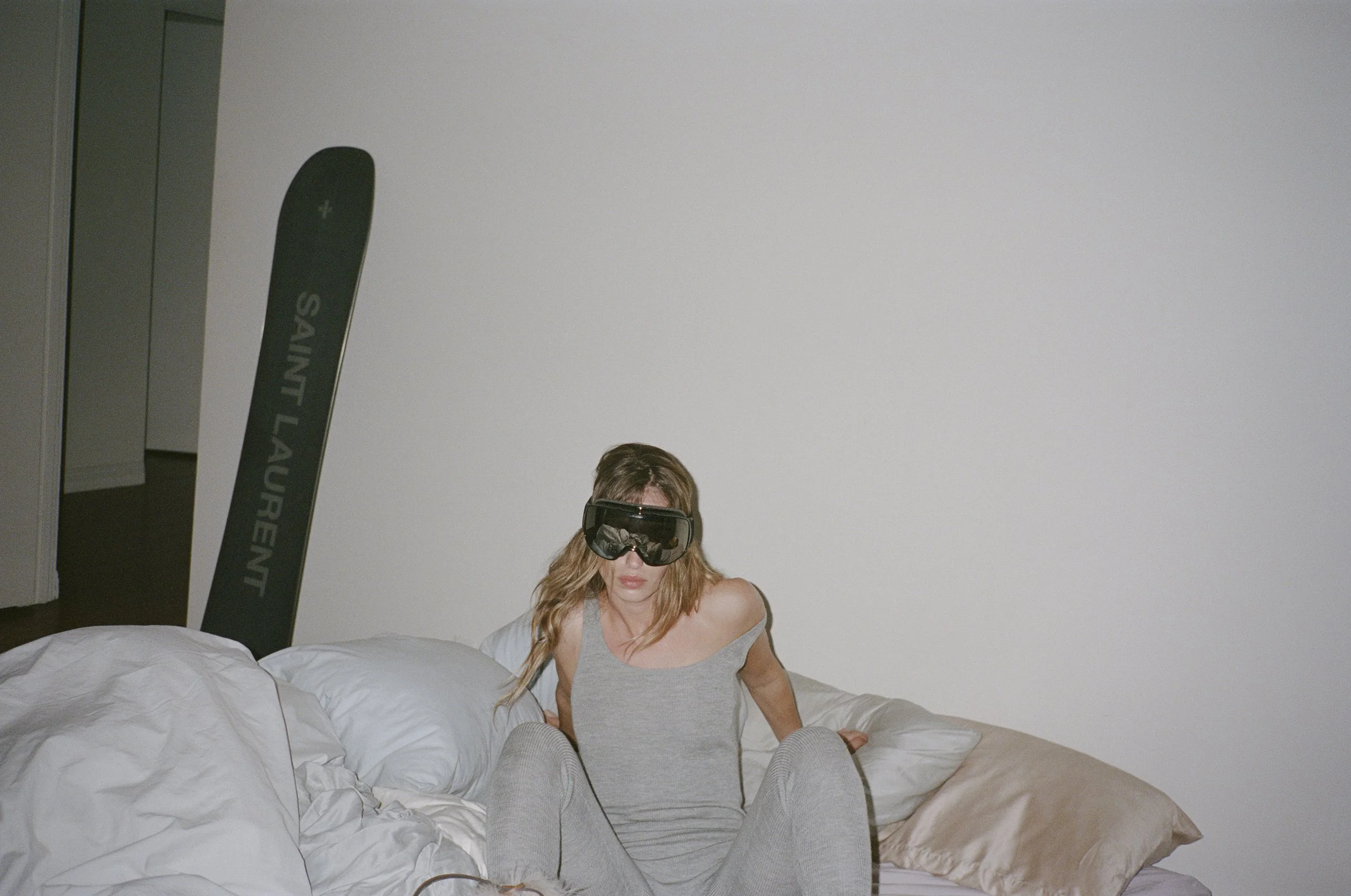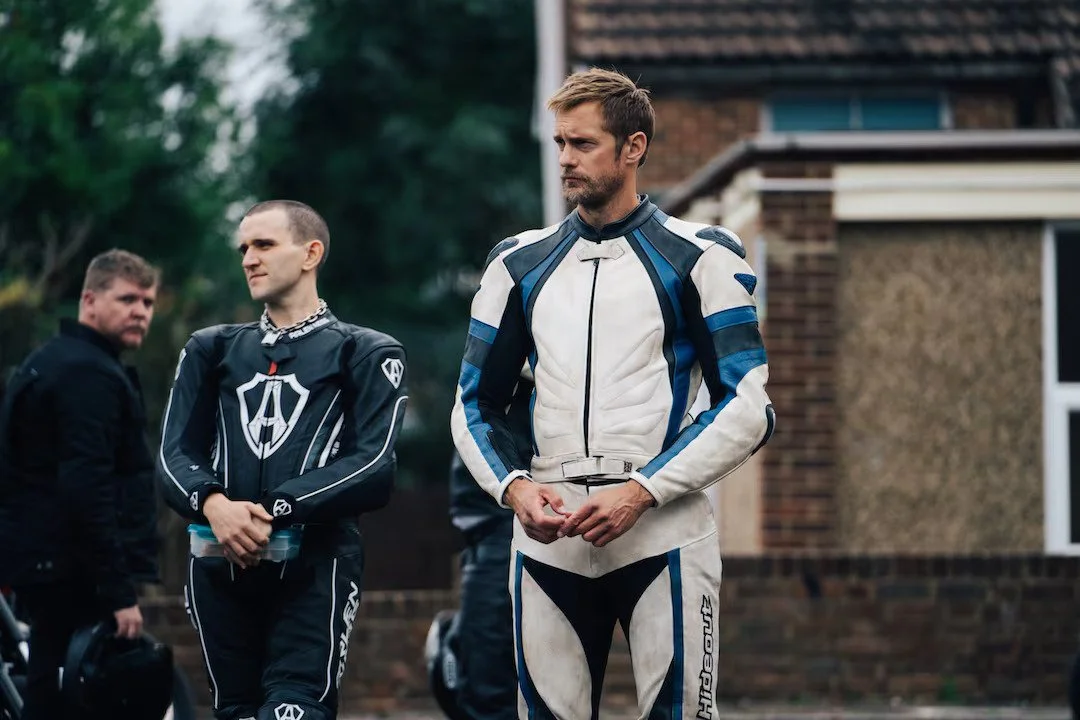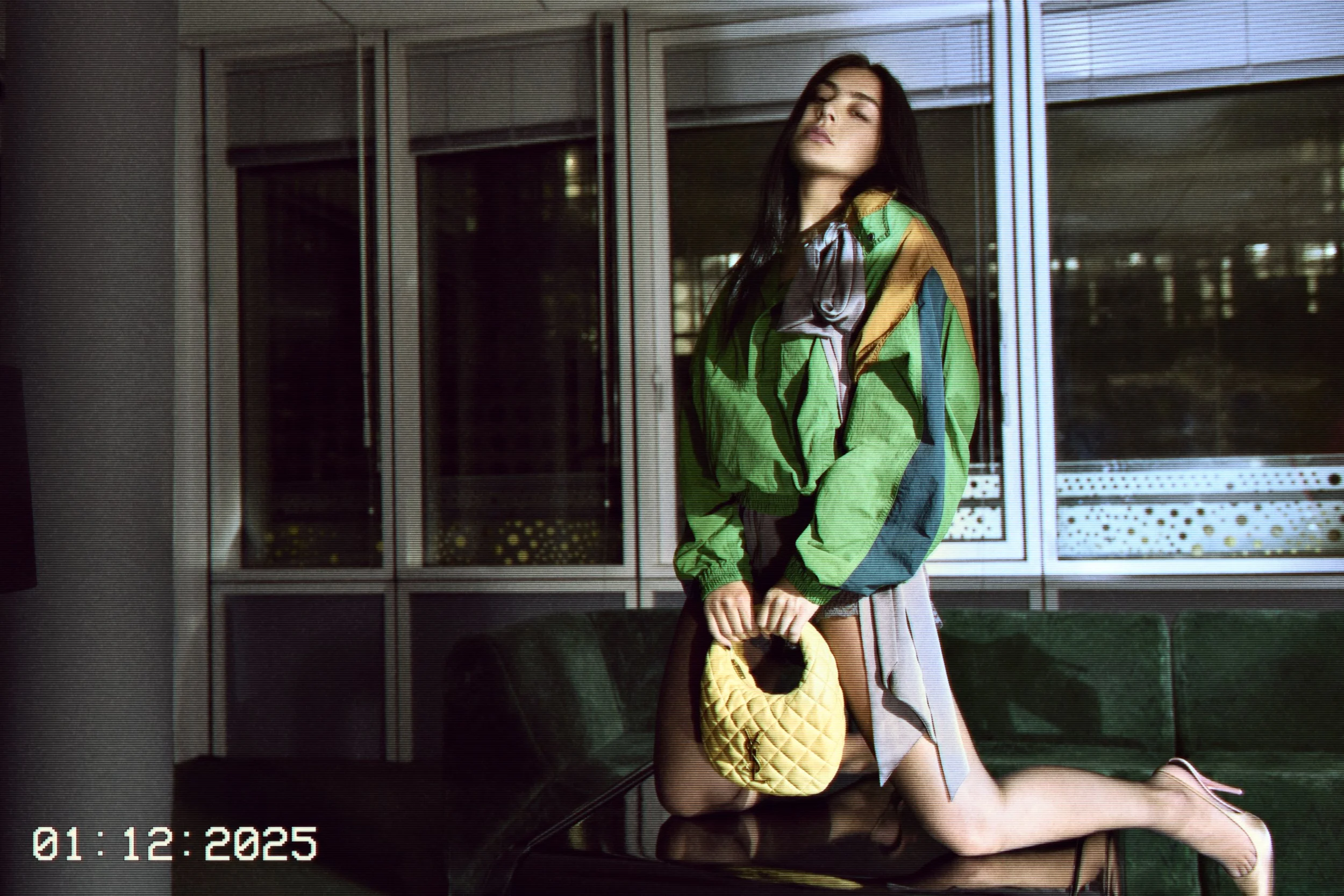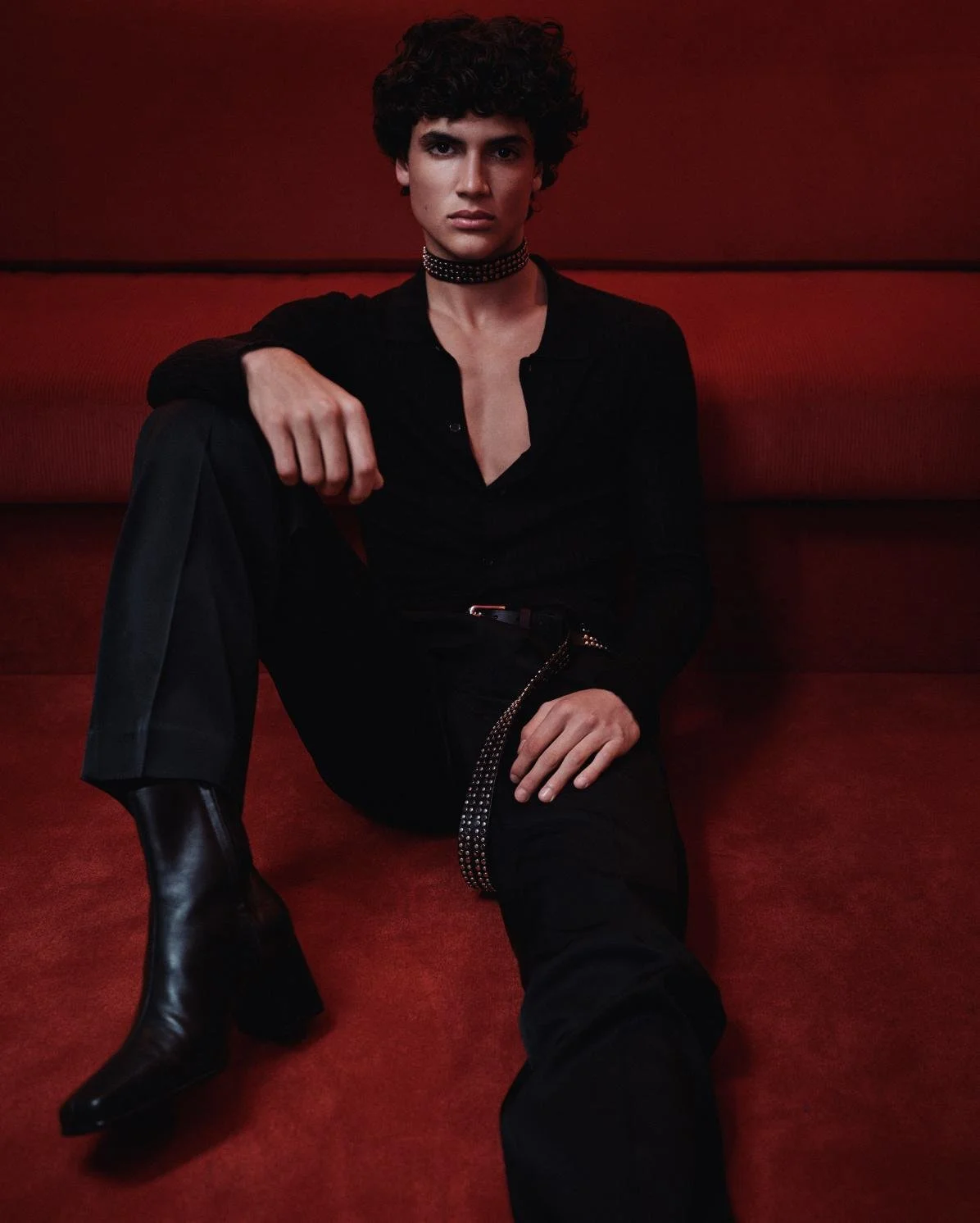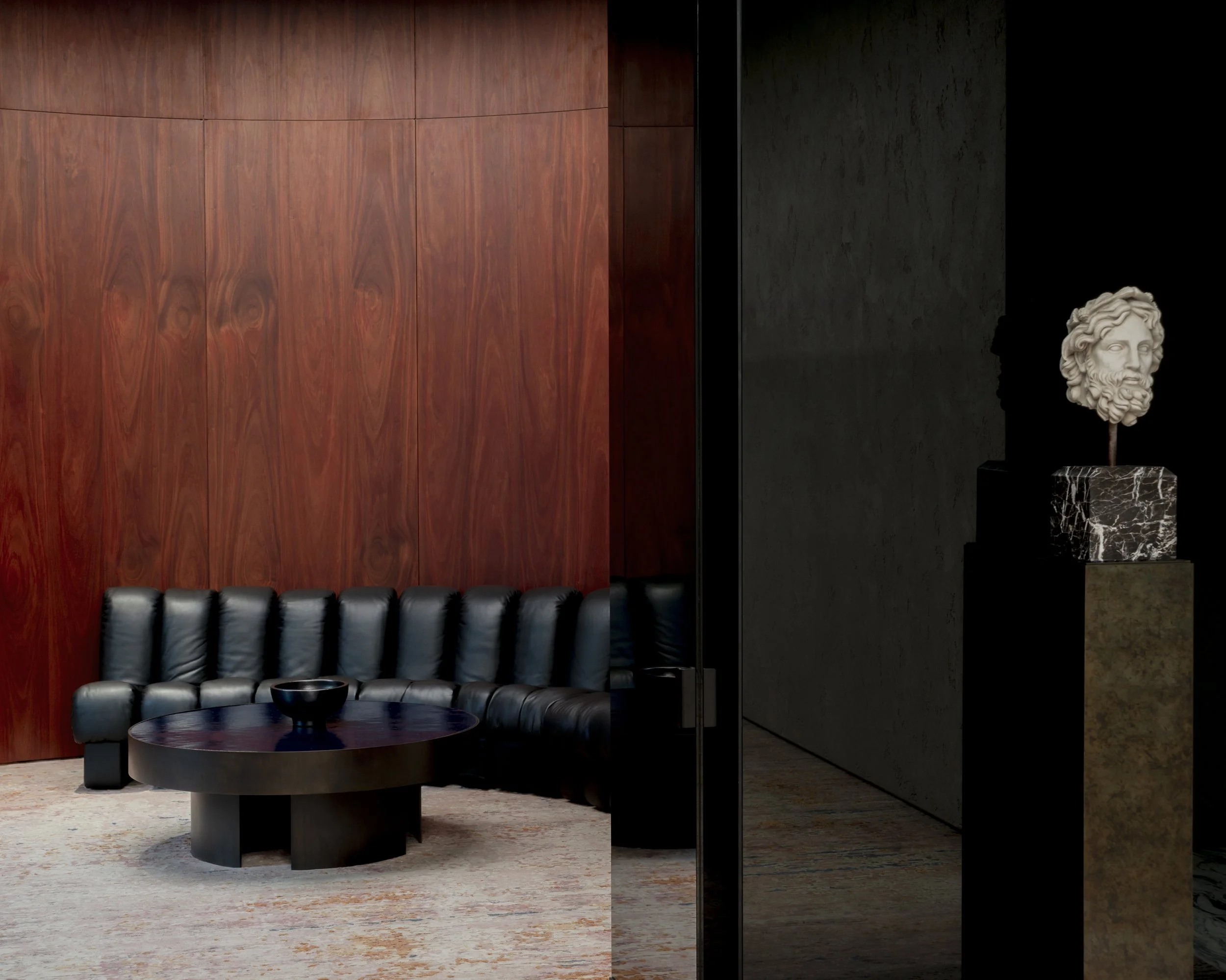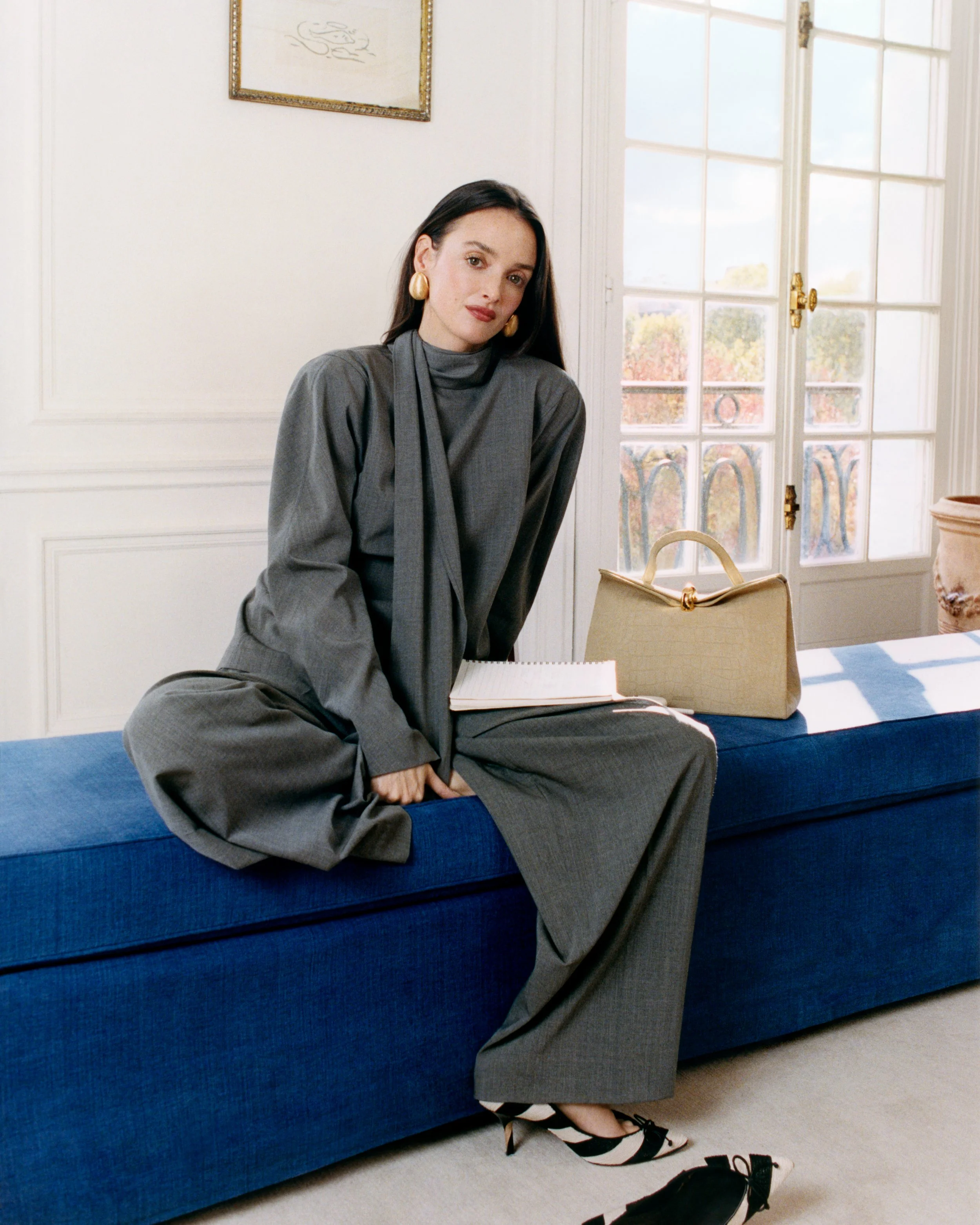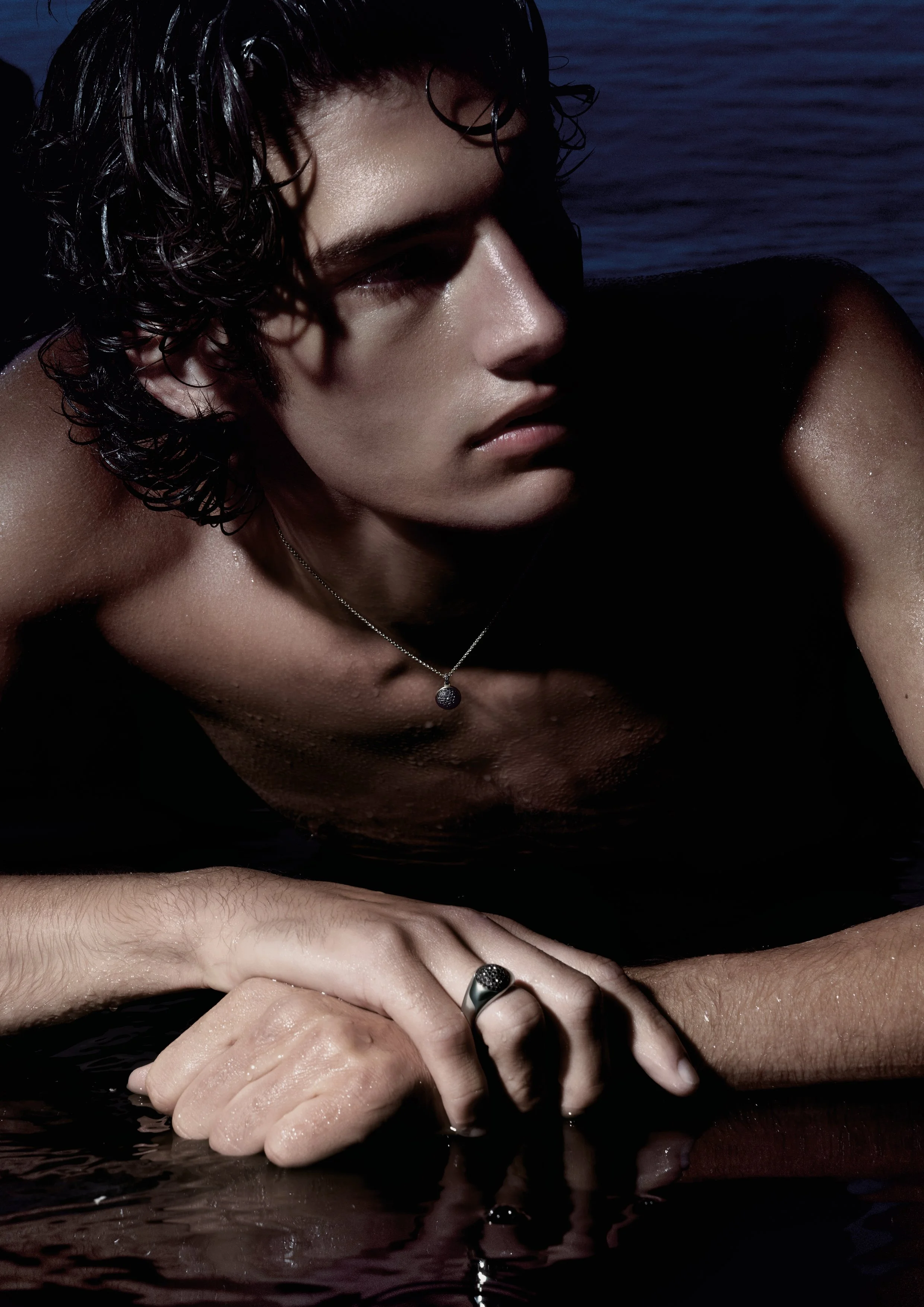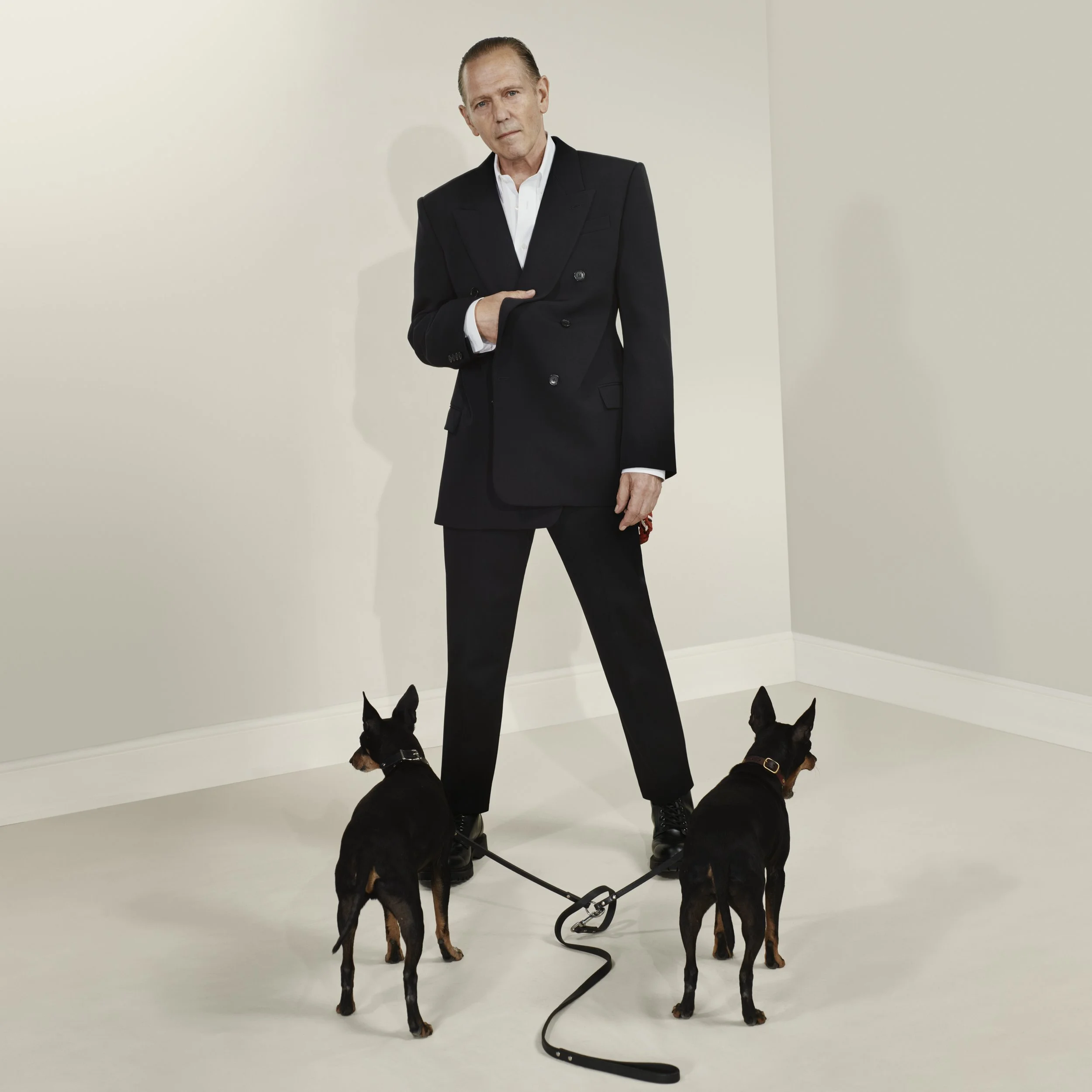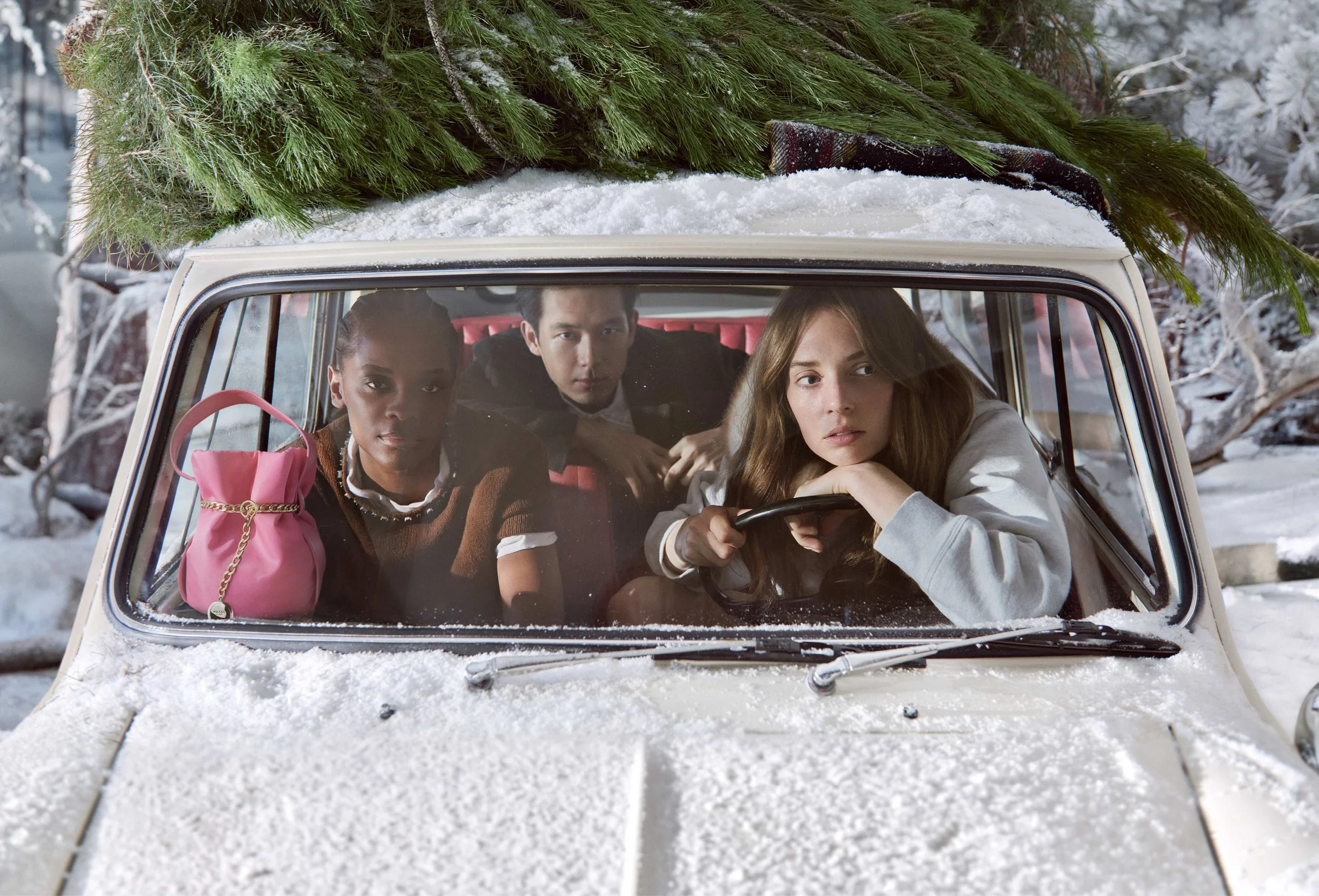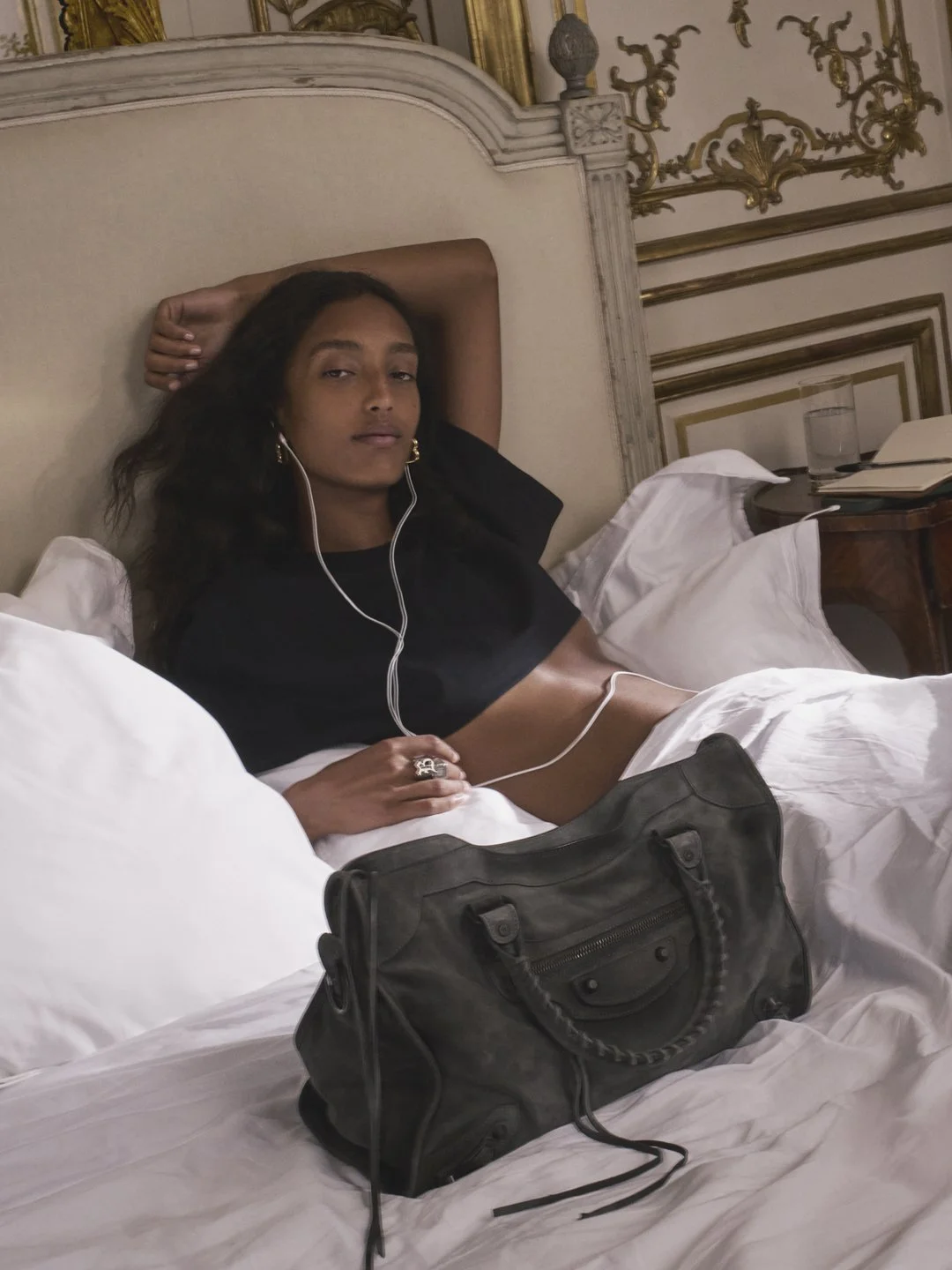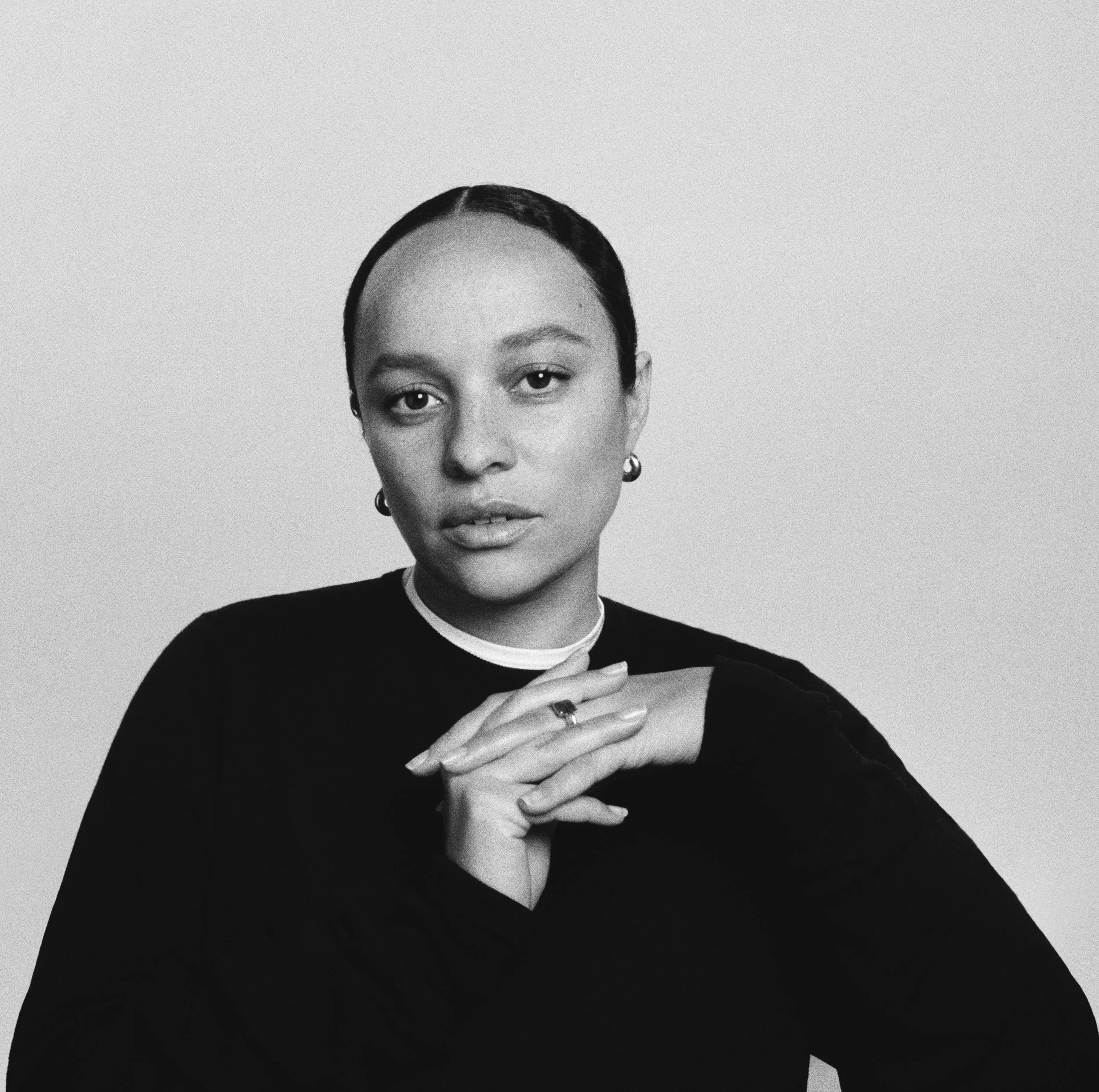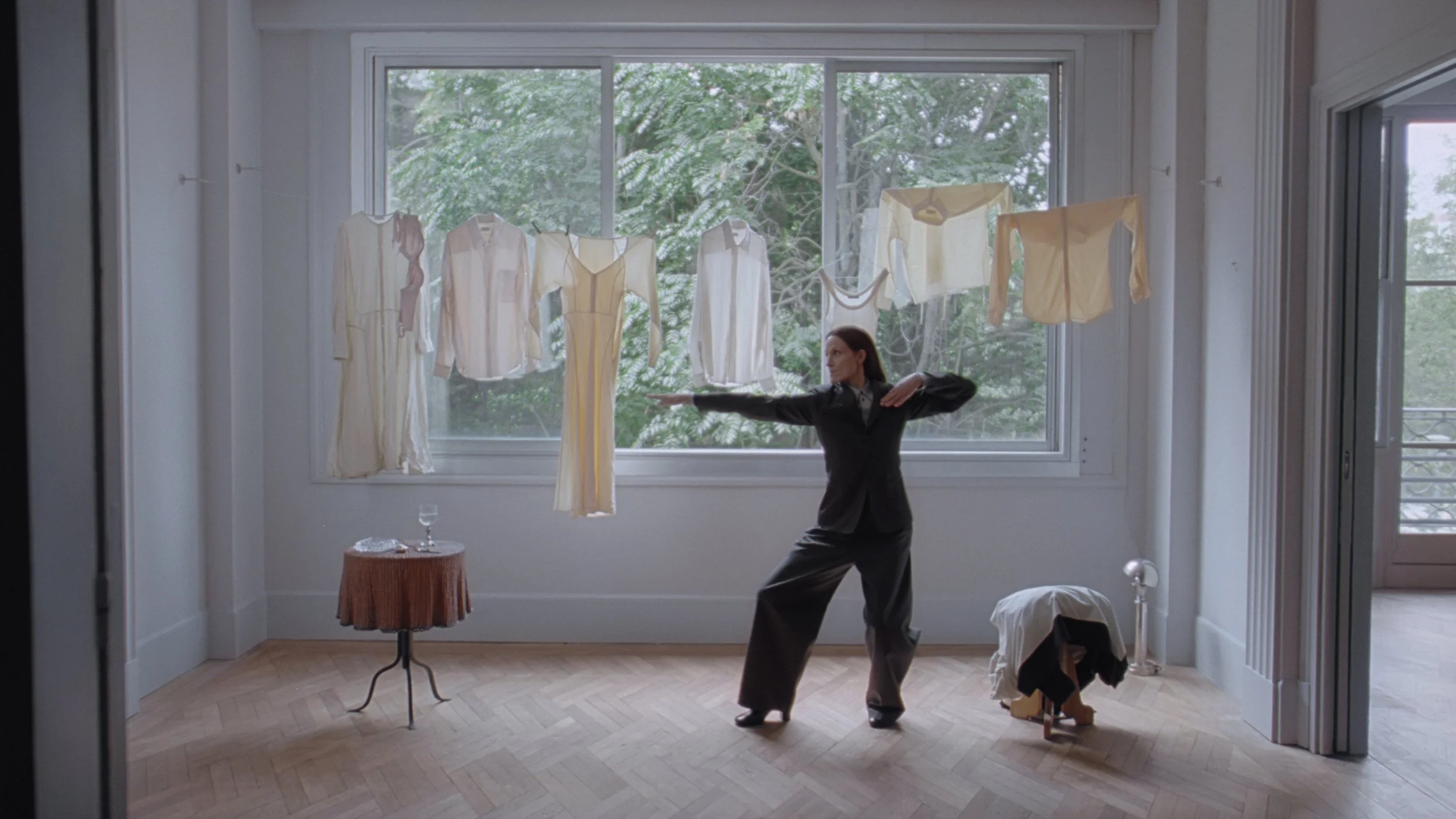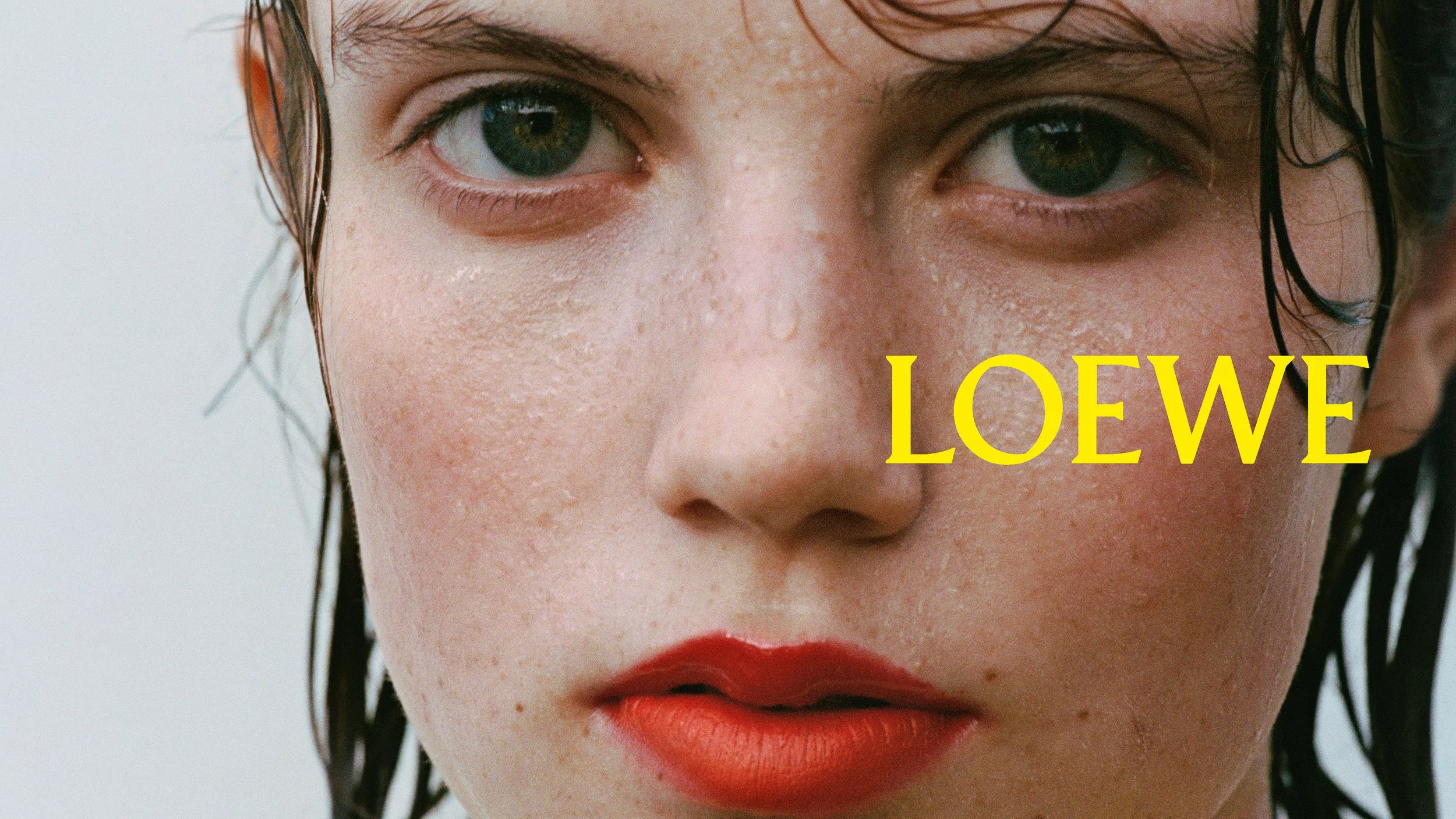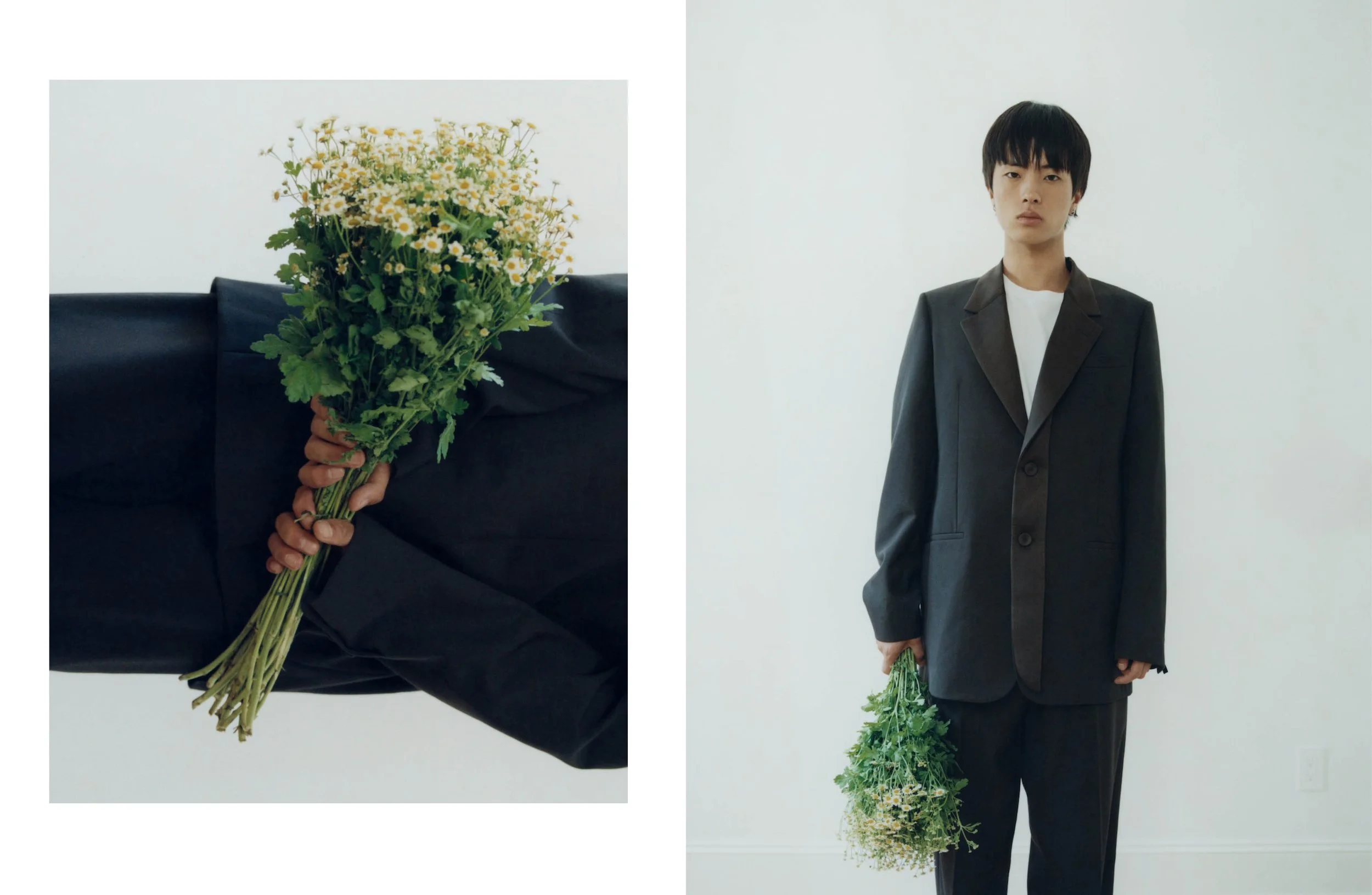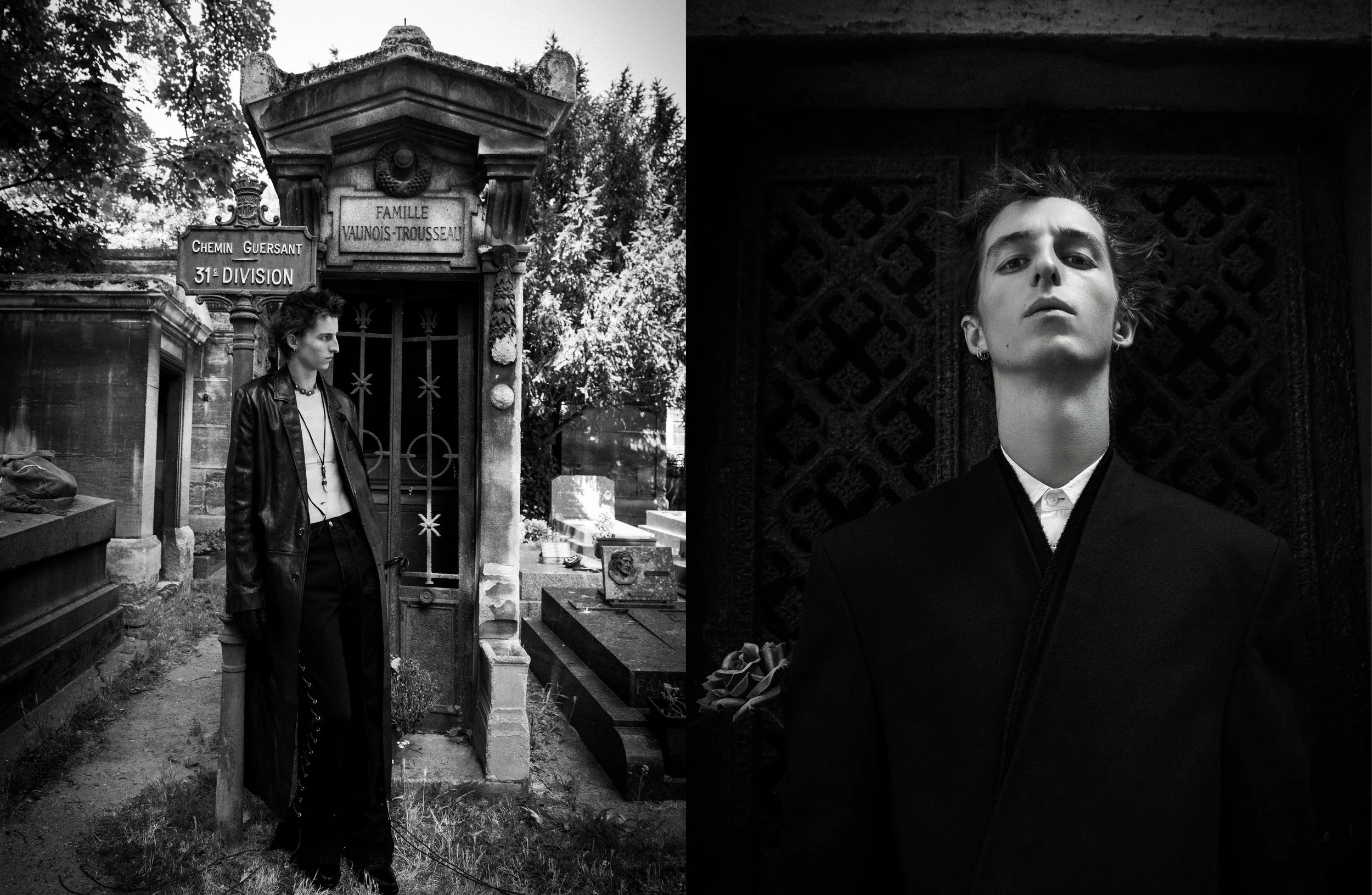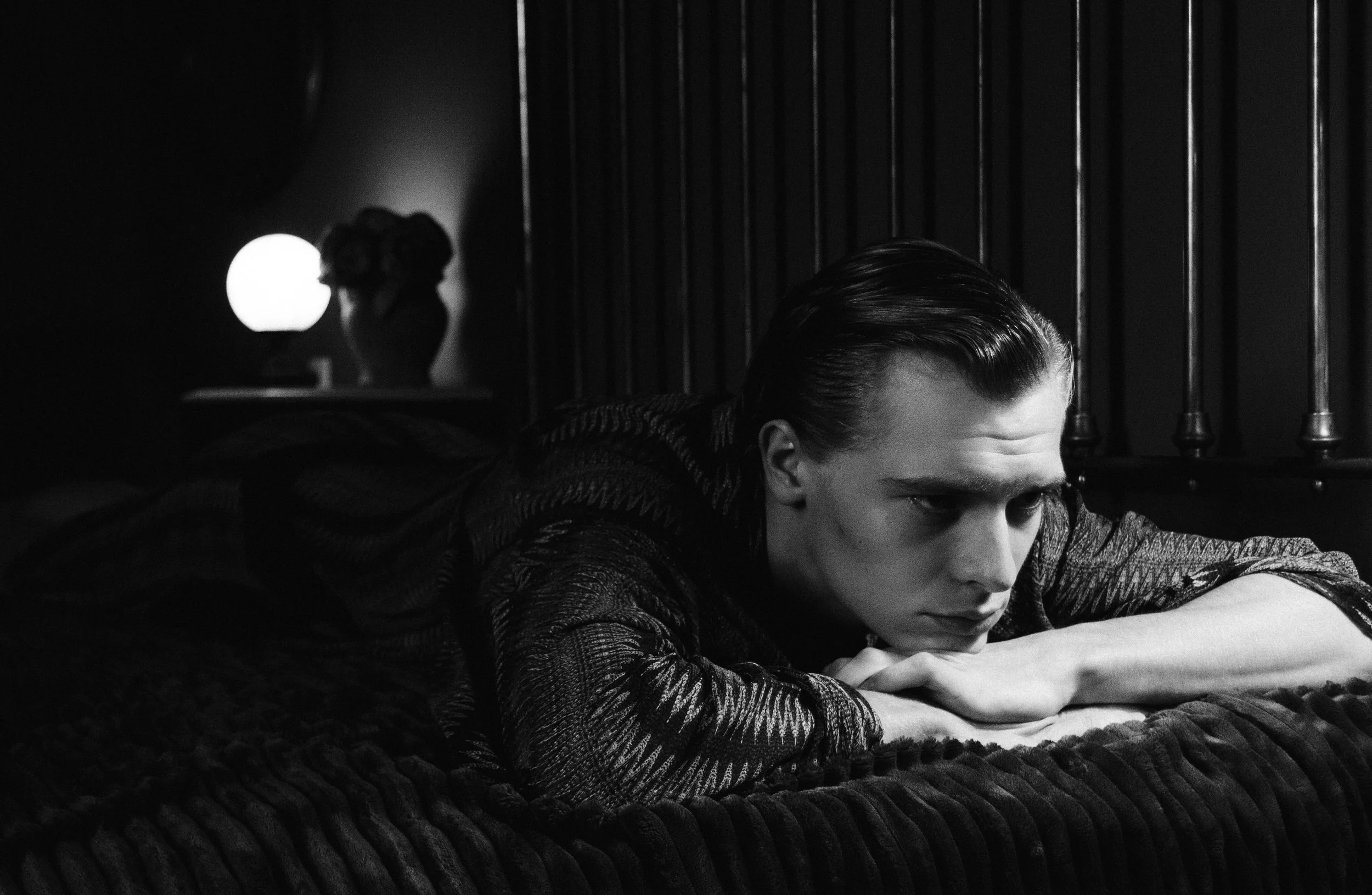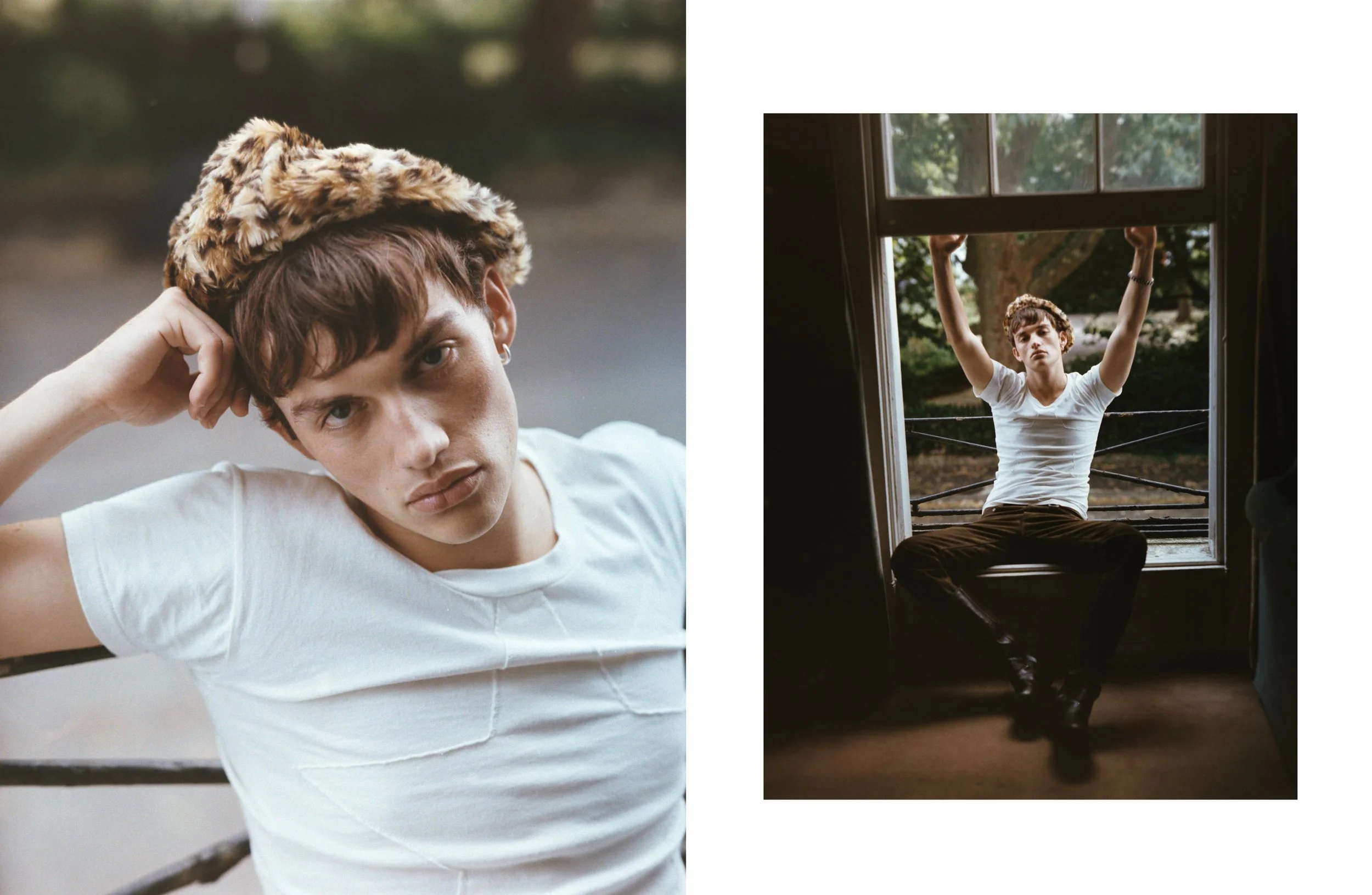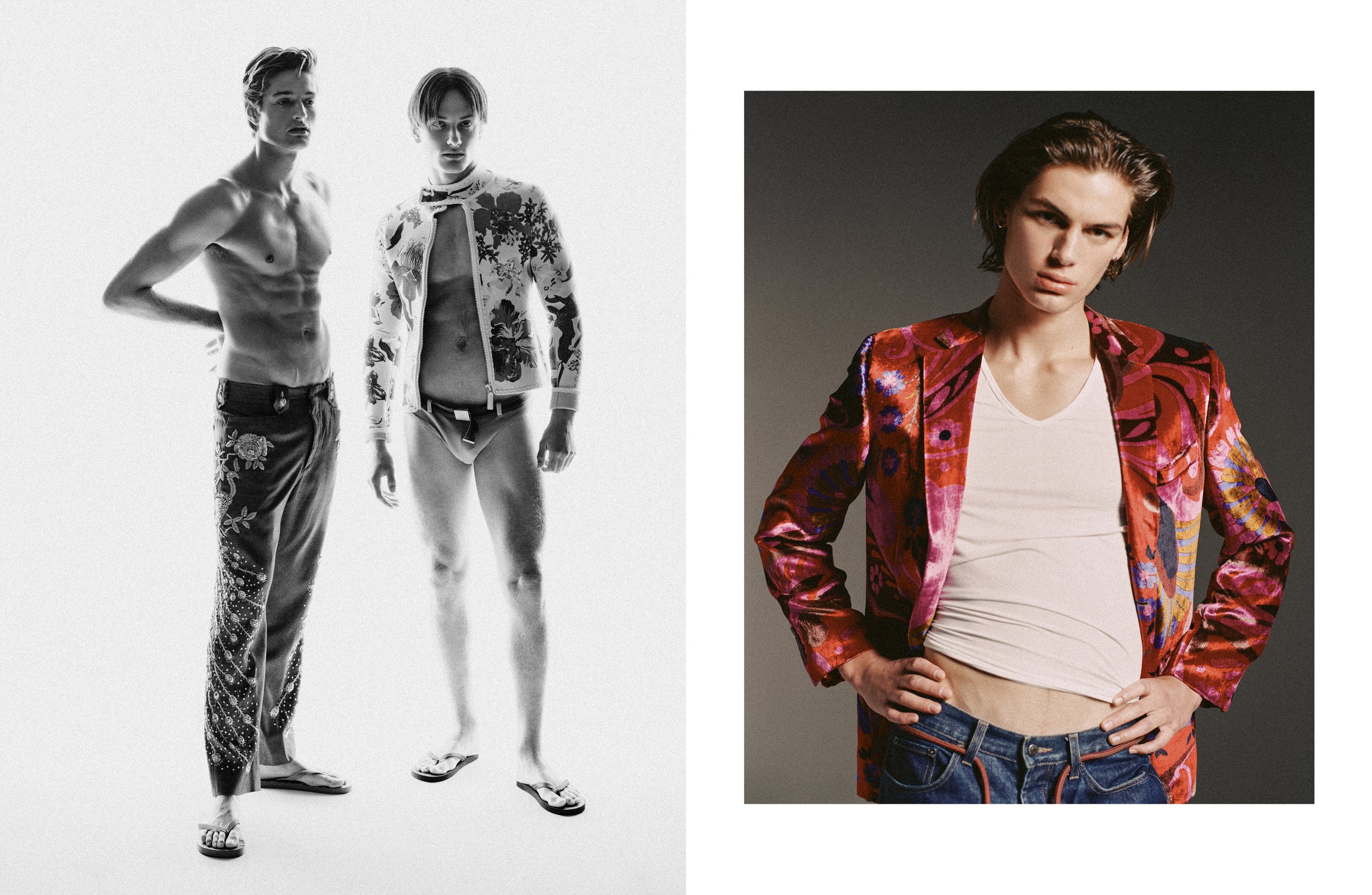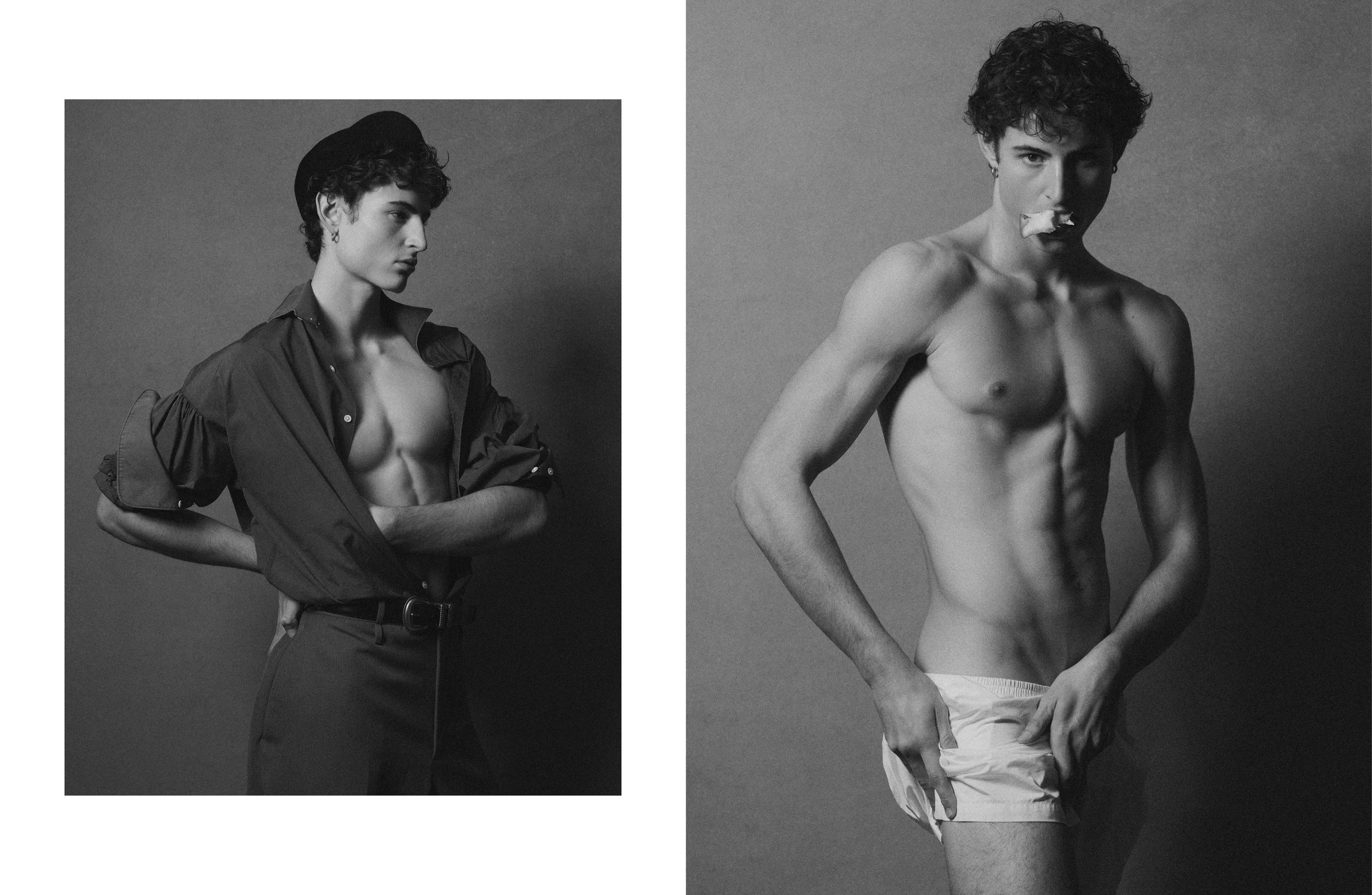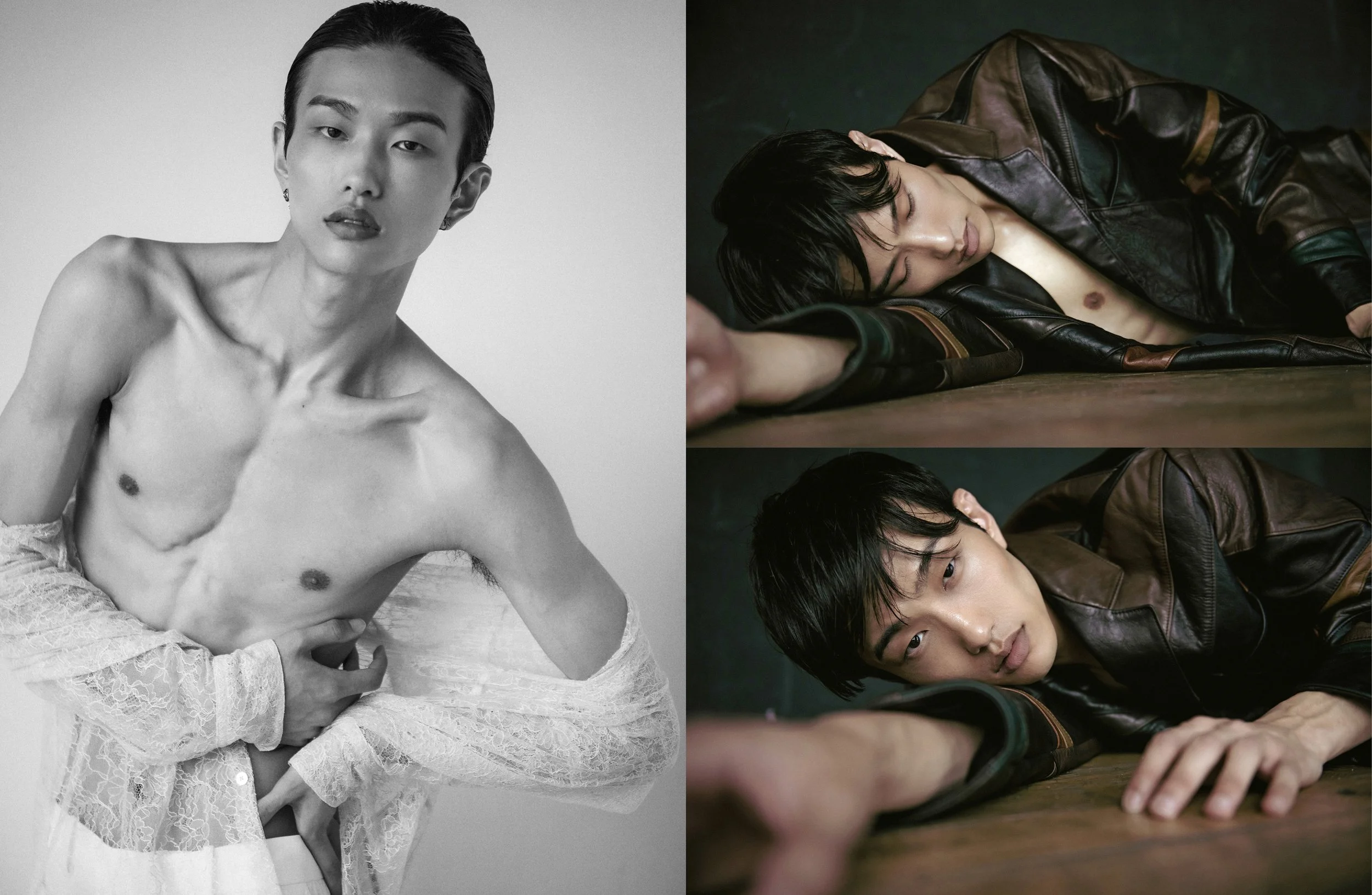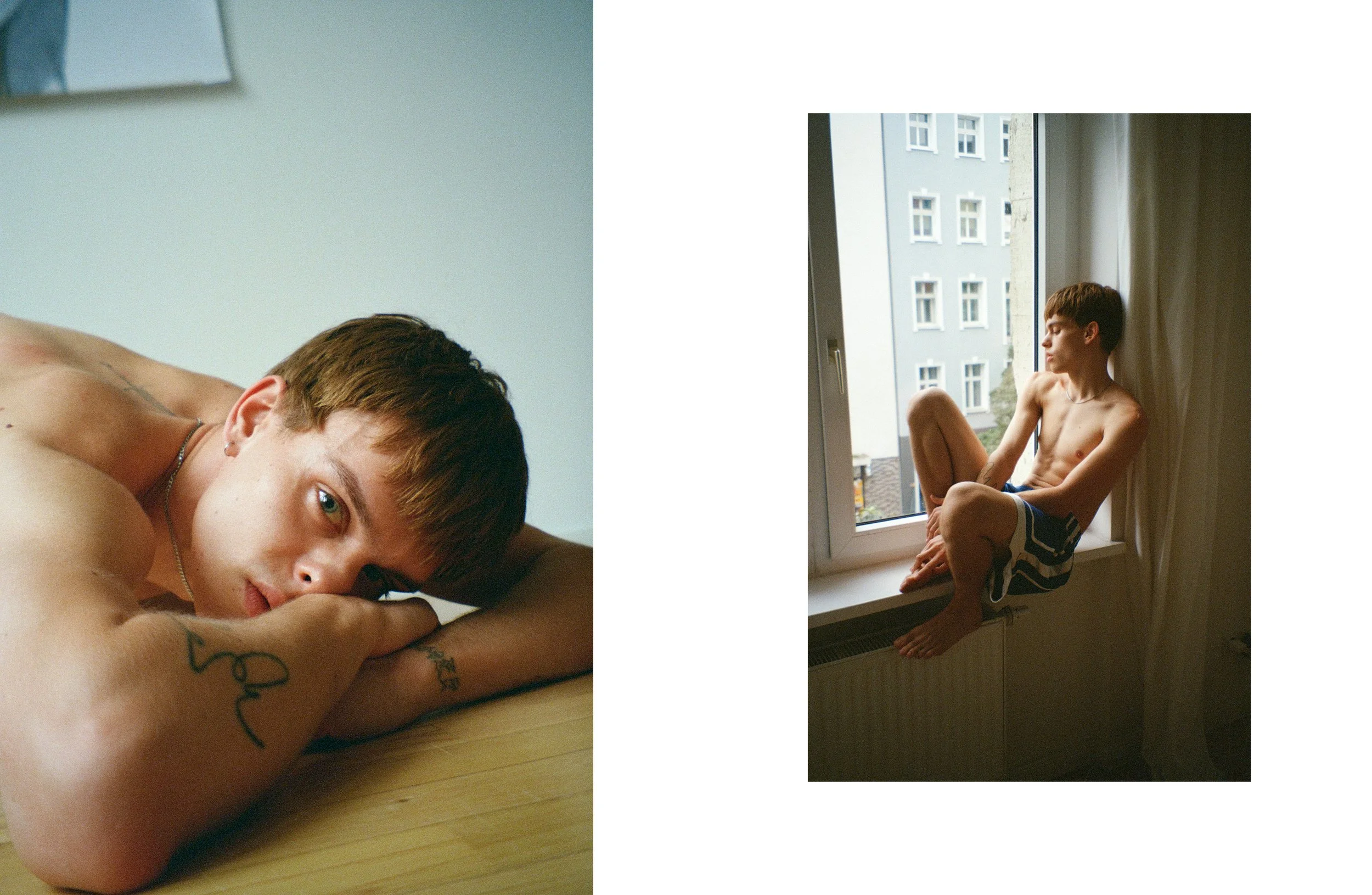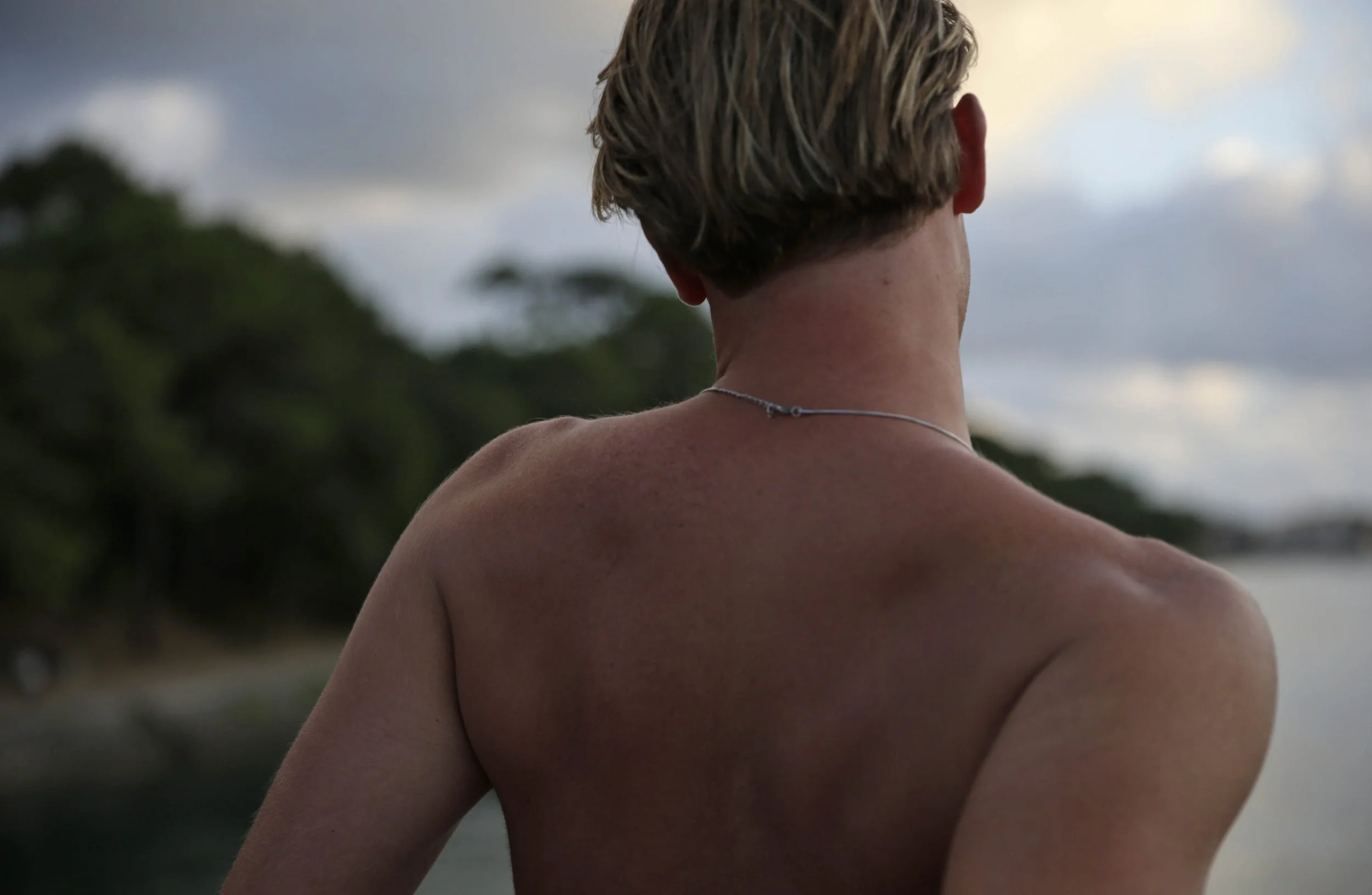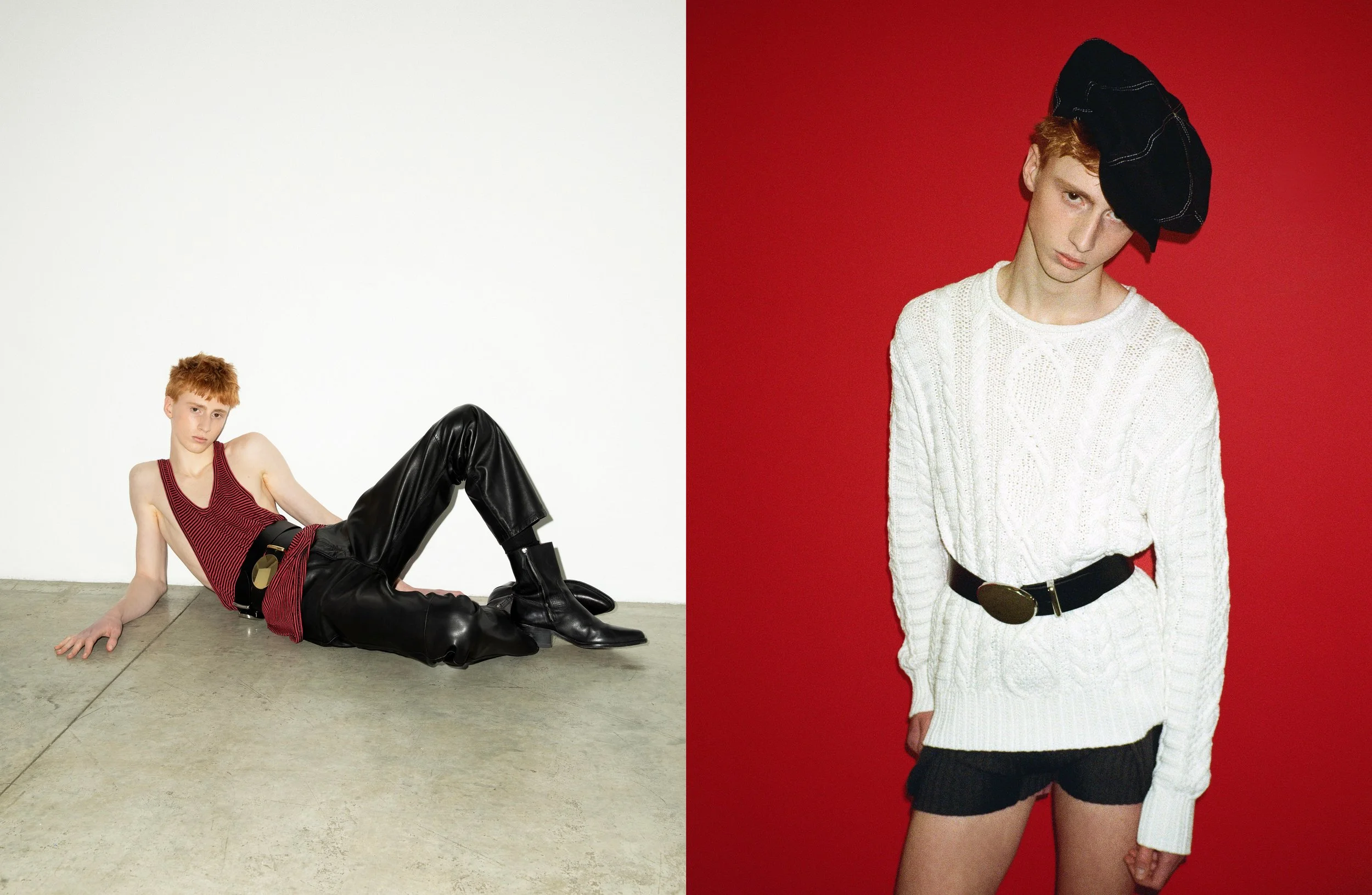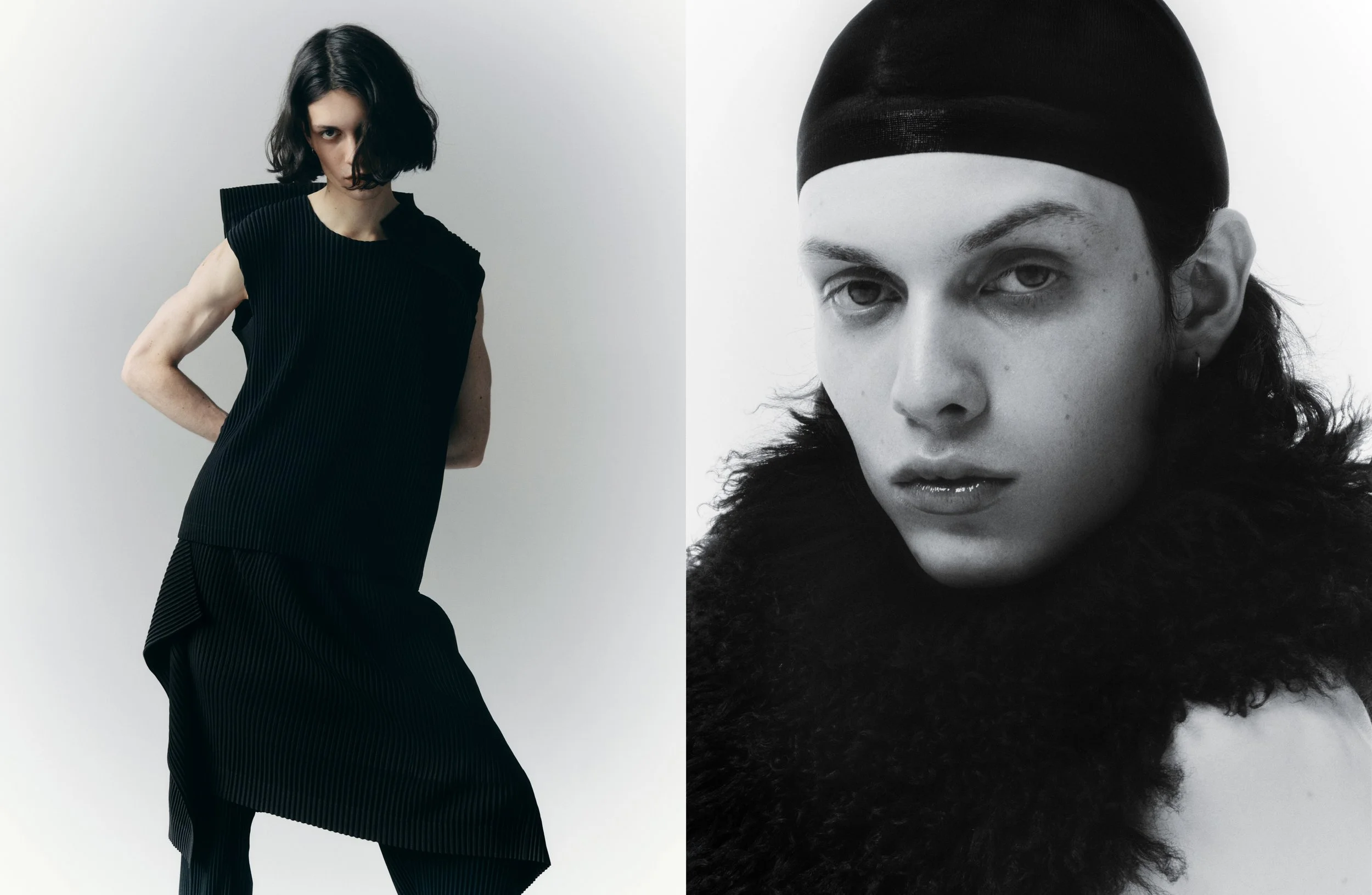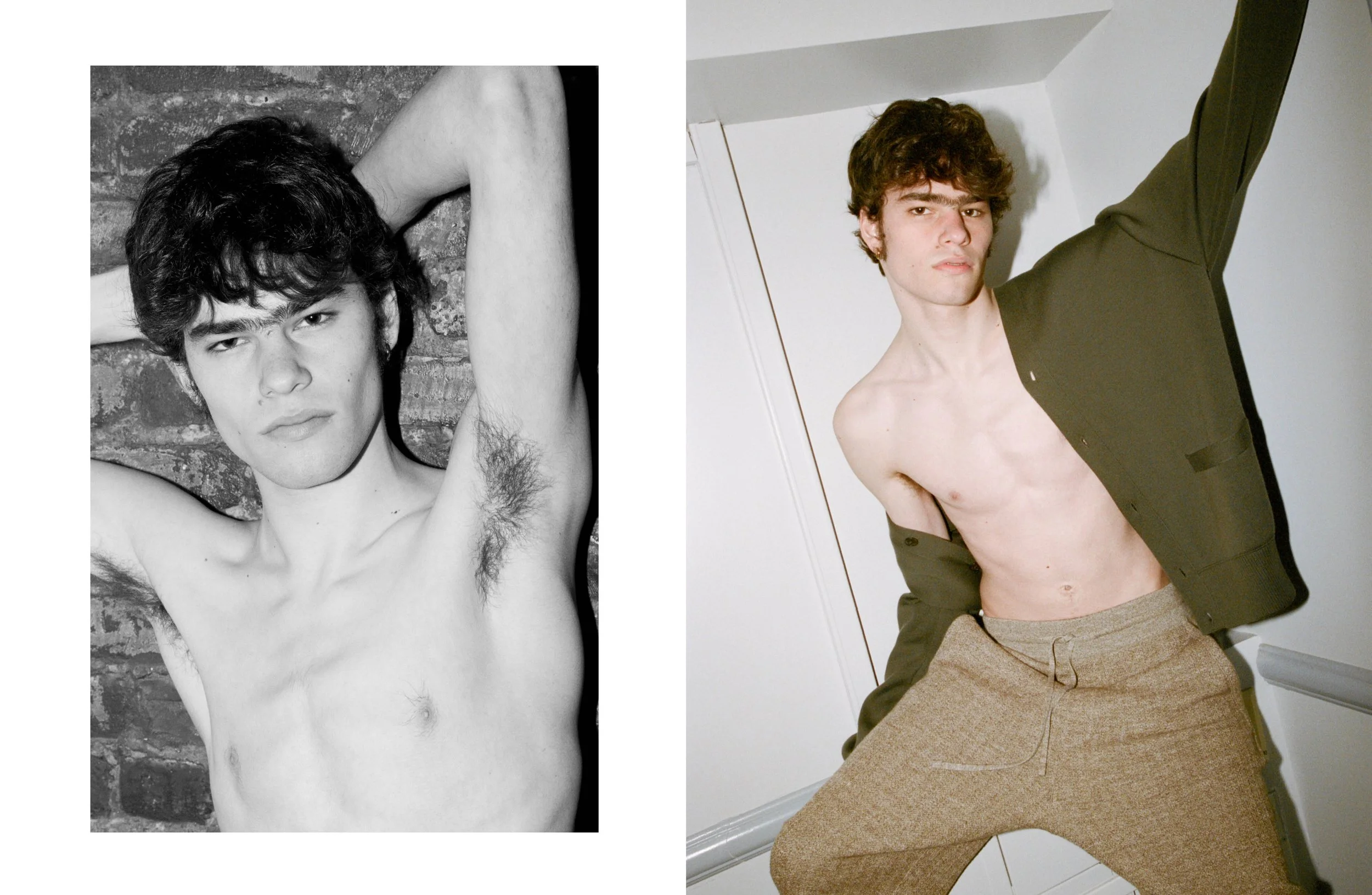SOME PEOPLE TAKE UP SPACE, OTHERS LET SPACE TAKE THEM IN. SANTIAGO CABRERA, LIKE MOST GREAT ACTORS, HAS MASTERED THE LATTER. HE’S ALWAYS BEEN AN OBSERVER, A WALLFLOWER WHO MOULDS TO HIS SURROUNDINGS. AS HE’S GROWN THOUGH, HE’S LEARNED THAT A WALLFLOWER BLOOMS WHEN IT’S NURTURED SLOWLY THROUGH TRUST, EXPERIENCE, AND AUTHENTIC CONNECTION. WE TALK ABOUT ALL THE TIMES SPONTANEITY GROWS FROM SAFETY, EASE GROWS FROM LABOUR, AND SUCCESS GROWS FROM PERSISTENT LITTLE FAILURES. AS AMAT IN APPLE TV’S LAND OF WOMEN, HE IS IN DIRECT CONTRAST TO EVA LONGORIA’S CHARACTER, GALA, AS THEY NAVIGATE THE FICTIONAL SMALL VILLAGE OF LA MUGA IN SPAIN’S WINE COUNTRY. AFTER HER HUSBAND’S MISDEEDS FORCE HER TO FLEE NEW YORK WITH HER MOTHER AND DAUGHTER, GALA IMPOSES HER WILL ON THE COMMUNITY WHILE HER RELATIONSHIP WITH AMAT TEACHES HER TO TAKE A STEP BACK TOWARD THE WALL AND LET ROOTS TAKE HOLD.
LIKE THE MINI-SERIES, OUR CONVERSATION HAS A SIMILAR BUOYANCY EVEN IN DEPTH AS WE TALK ABOUT JOHN TURTURRO LICKING BOWLING BALLS, BEING HIT BY A FRENCH BABYSITTER ON A ROAD IN CHILE, AND THROWING A BALL TO A DOG WHO WON’T BRING IT BACK TO YOU.
Hi Santiago, it’s so nice to meet you! I first wanted to tell you that I watched Land of Women and it’s so good. I’m watching the finale right after this!
Thank you! I’m very glad to hear you say that. I get the sense that people are really enjoying it. I haven’t seen the finale myself so I’m looking forward to it! We did the premiere in New York and it was great to see it with a crowd in the cinema. People were laughing and it played really well. The comedy, moments of family dynamics, and emotional moments played well. It’s fast-paced, but when it breathes, those moments come to life.
It’s a great mix of everything but there are also a lot of deep, unexpected themes. I wanted to take some themes from the series and see how they relate to you. So, if you could travel back for an extended period to a place from either your past or your family’s past, where would you want to go? What do you imagine it would be like?
Wow! For my past, it’s something I always think about. People say, “What would you do differently?” and I feel like I would do the same things again since it’s me. I would be curious to go into my family’s past and to go to South America and Chile and see those first generations and what their lives were like. I’ve always been very curious about history and the beginnings of things, but at the same time, I could track down European ancestors. I would have to do one of those DNA tests to see if there’s Indigenous ancestry in there and do a whole tracking of my family history. I find that really interesting.
That makes sense because who you are is affected by your ancestry and your family’s past can impact you in ways you may not even know. When you think about times in life when you have found yourself in unexpected places, what comes to mind?
I moved around a lot as a kid so I was always in unexpected places. What comes to mind is new schools and new people. I was very intimidated by that. I didn’t see it like that at the time, but I look back now and realise I was terrified. I found a way to blend in and sort of camouflage myself. I didn’t want to stand out, so I think that really impacted me. At the same time, it allowed me to recognise similar types — what I’m fascinated by as an actor – human beings, cultures and countries. We can be so different in so many places, but then you see very similar archetypes everywhere no matter their race, how they’re dressed, what food they eat, or what culture they come from. I started to recognise human beings as so much more in tune with each other than we think.
I agree with that. You mentioned camouflaging yourself when you were younger. Some actors have a major difference between who they are as an actor and who they are as a person. Do you find there’s a big difference between you personally and professionally?
Yes, I think so! It’s kind of a contradiction in a way. You think actors are all extroverts who want to be the centre of attention and you definitely get those types in acting classes and drama school. There is also a cult of personality in being a celebrity. I’ve always been very intimidated by that — this idea that you have to be something away from the job. But, at least for me, I do tend to find that actors I look up to and have been lucky enough to meet can be quite shy. That’s when you observe. If you’re always the centre of attention and in charge, then when do you pay attention to what’s going on around you? When you sit in the back and watch, you get to take things in and as an actor, that’s all we have. Life is our training. If you’re observing people and taking things in all the time, you’re feeding your instrument in a way. When I was younger, I was definitely intimidated, but now as I get older, I don’t care so much anymore about that side of it. If anything, you start to have fun with it. I’m really enjoying interviews now and even photoshoots. It’s a chance to be with new people, relate to new people, and promote stuff that you want the audience to watch. Life teaches you a lot of things. The difference that I’ve found is it’s good to observe, but you don’t want to close yourself off. You want to remain open and let people in.
I’m sure over time you progressively open up and that’s great that you are finding joy in the things that used to make you uncomfortable. A lot of Land Of Women is about trust and how it’s earned, especially for your character in being welcomed into the community. In acting, what role does trust play for you and whose trust do you look to earn first on set?
In acting, the best work comes when you trust the people that you're with. It’s like that thing when you're falling backwards and you trust that someone’s going to catch you. You’re failing all the time and I really like to try things out, so to be creative, you have to be willing to fall on your face and make a fool of yourself. I remember reading an interview with John Turturro when he did The Big Lebowski—he has this scene where he licks a bowling ball and it's such an iconic moment and it's ridiculous, the character is ridiculous. He said if he hadn't known the Coens and if they weren’t friends for years, he doesn't know if he would have dared to lick that ball, to make that choice. He felt safe. That’s what it is, if you feel safe with those people then you can just really be creative and not feel judged. It's very important to trust the director, co-stars, and the team of writers. You want to look for creative allies, that’s what I’m always looking for. In this show, it was definitely there. It was a nice group. It’s easier sometimes when it’s a movie or a mini-series where it's just two directors because you kind of create a small group. When you’re on a long-running, episodic show, sometimes someone pops in and you do a couple of takes and they say they loved it and you didn’t think it was the right choice, so you can just go, “Okay, for the next eight days, I’m gonna do my own thing.” In general, I just look for projects where I think I'm going to have creative allies because that's where the best work happens.
Do you have a “bowling ball licking” moment — a choice you made that comes to mind?
Well, a lot of the time it's just little ad-libs that you’ll add or moments of a look here and there. On this show, I think there were a few in the way that Amat would get sort of explosive. There were a couple of moments where I tried different levels of emotion. It’s nice to see when you watch something and a choice you made was there and it worked. And then you forget because, at the end of the day, a good idea is a good idea, no matter whose it was. I also like to watch something and I forget and I think, “Was that my look, did I think of that?” I don't really care anymore, so as long as it works, that’s the main thing.
Is there anything you discovered about your character while you were mid-scene or on set — something you didn’t explore when you were prepping?
Yes, it's always a discovery process, for sure. There is the lifestyle [of the character.] I remember wanting to spend some time at Amat’s house at the beginning when they were doing some construction on it. I rehearsed and read the script and I asked, “Can I just go and hang out at the house?” I just sat at the kitchen table, went outside, and sat on a log under a tree to read the script and go over the lines. That was very helpful and afterwards, when we were on set, it just felt like I lived there. It felt familiar and like I knew where to go. Those are little tricks you do to protect yourself. For me, the more the character is ingrained in you before you start, the more you can just forget about what you will be doing and you're not thinking things while you're on set. By then, you want to be free enough to just explore. I spent as much time as possible with the dog in the show, Golfo, whose owner was so great. I would just throw the ball to him. He was so loyal to his master though. She had to be on set so sometimes you'd throw the ball to him and he would go grab it and, as opposed to bringing it back to you, he would run off and give it to her. But you know, we bonded. So those little things were very important.
For The Cleaning Lady, you got a letter from the showrunners with a description of your character’s arc and background. I also read that you typically find acting very physical. What do you find most helpful when you're trying to access a character?
Well, that was refreshing to get because it meant you were working with people who had a real take on who this person was rather than saying, “Alright, we’ll see,” which happens sometimes. I come from theatre, from stage work, but since I did a couple of plays, I’ve been doing mainly TV and film. There is a distinct thing where you’re using different muscles like projecting on stage and having to reach the back row whereas the camera is much more intimate. But I still think the use of your body and the way you approach a role is the same because, at the end of the day, you need to be alive. In life, everything’s alive and your body is always reacting to everything, so in that sense, I don't distinguish it at all. It’s the same process. I feel it's very important, even if they're just filming you and framing your shoulders, your body always needs to be alive. What I hate that you see a lot on TV is when people are like machines and have a formula and just stand and talk. And in life, that never happens, especially when there's a heated argument between two people. It happens on the street sometimes when people bump into each other. I’m always paying attention to these things. I feel like it's almost a dance. If I'm using a prop or if I’m using something in a scene, I rehearse it a lot to practice the movement so when I get to it, it feels very natural. And sometimes you don't do what you did in the rehearsal, but at least you have made yourself familiar with everything around you and made it feel real. You have to own the space and everything in it so it's very important to be familiar with the space. It’s a crucial tactic.
That's a great way to describe it too because as a viewer, you can have a feeling when something isn't natural or when a character doesn’t feel fully real, even subconsciously. You might not be able to pinpoint why because a lot of communication is in body language and not necessarily the dialogue.
That’s exactly right. You’re not doing it for the Thespians out there who say, [Mimics] “Oh, what beautiful technique!” It's really on a subconscious level. It’s the same thing when there's a good vibe on set when people are collaborating and connecting. When there's a good relationship on set and a really creative mind behind it, those things will translate and people won't be able to necessarily identify why, but the truth of it will come out from those things. A lot of actors sometimes feel so natural and you think, “Oh maybe that’s just you being you,” but behind that is a lot of work.
Absolutely. I also have a fun question that is based on the show! We see Gala and Amat meet after she crashes into his trailer, so I wanted to know in real life, what is the weirdest way you ever met someone?
I mean, I had a crash moment once, but I didn’t maintain a relationship with that person. [Laughs] I was once blindsided a long time ago when I was a new driver. I was like eighteen and I had just gotten my licence. This was in Santiago, Chile, and someone made a mistake and didn't look one way and completely hit me on the side. I was so shocked but we ended up chatting for a bit. The lady who ran into me was a French babysitter who shouldn't have been driving, but she was literally just going two blocks down the road to buy groceries. They asked me if I could at least say that the guy she was with was driving because if not, she would get arrested and might have to leave the country. So they won me over, and it wasn’t a big deal in the end. So I had a “crash-in” moment and I related to these people for a couple of weeks and I ended up realising that the guy I had helped out, I knew his brother, so it was a cool connection there.
Woah, so interesting! I thought it would be an interesting question but it is hard to come up with an answer! I was thinking of my own life and if anything has ever happened similarly to that.
It just reminds me of how sometimes people project things and fantasise. I think in our minds we create these idyllic scenarios of what could have been. But you don’t know what it could've been like unless you go up to someone and make it happen. We sometimes drive ourselves crazy with what could have been or would have been, and I think it’s important to focus on the life we’re living and embrace it.
That is very true. I want to move to what’s to come for you. I read that you like to take on things you haven't done or things that challenge you. At this point in your career, what do you consider to be a challenge or outside of your comfort zone?
A lot of the time, people ask, “What would you like to play next?” I have no idea. I could say, “I wanna be a detective,” but then something else comes along, and all I want is well-written stories with well-rounded characters. I feel a challenge is a three-dimensional character and I love a good character-driven piece. They are hard to come by and they’re hard to craft well. So that’s always a challenge when you really have a journey with that character, and you see a change within the story and someone grows as you're watching that story. And I love all of John’s [John Turturro] characters. I find that super exciting about the show. You don’t know what’s around the corner or what could be coming. I think it's so exciting when you read something and you’re inspired. That’s what makes you tick and keeps you going in this.
Yes! I always wonder how often something might come along that inspires you — if it's a rare thing or if you can be inspired by little pieces of everything. I know actors are usually at the front of public perception but so many other things and inspirations go into a project and you have to trust that everything clicks into place and you feel good about it.
Yeah, it’s kind of a fine line. The industry wants to know you and what’s the one thing you do, and a lot of work can come through that because they identify you. But in a way as an actor, you don’t want to be identifiable. You don’t want to be pinpointed because that allows you to do different things. Also, you want to maintain some kind of anonymity and mystery, so that other people can believe you as different things. If everyone thinks they know you exactly as one thing, then it's harder. It’s a great thing when someone’s like, “Oh, you can do anything, we can’t find just that one thing,” but on the other hand, it could hinder you. It’s a balancing act. Ultimately, you just want to do good work and keep going. I just love being on set with other actors, directors, and crews. I just love the atmosphere of being creative with a group of people. When you get a chance, you just want to do the best you can. The rest of it is out of your hands.
Interview by Tessa Swantek
Photography by Shane McCauley
Fashion by Christopher Kim
Grooming by Rachel Burney
